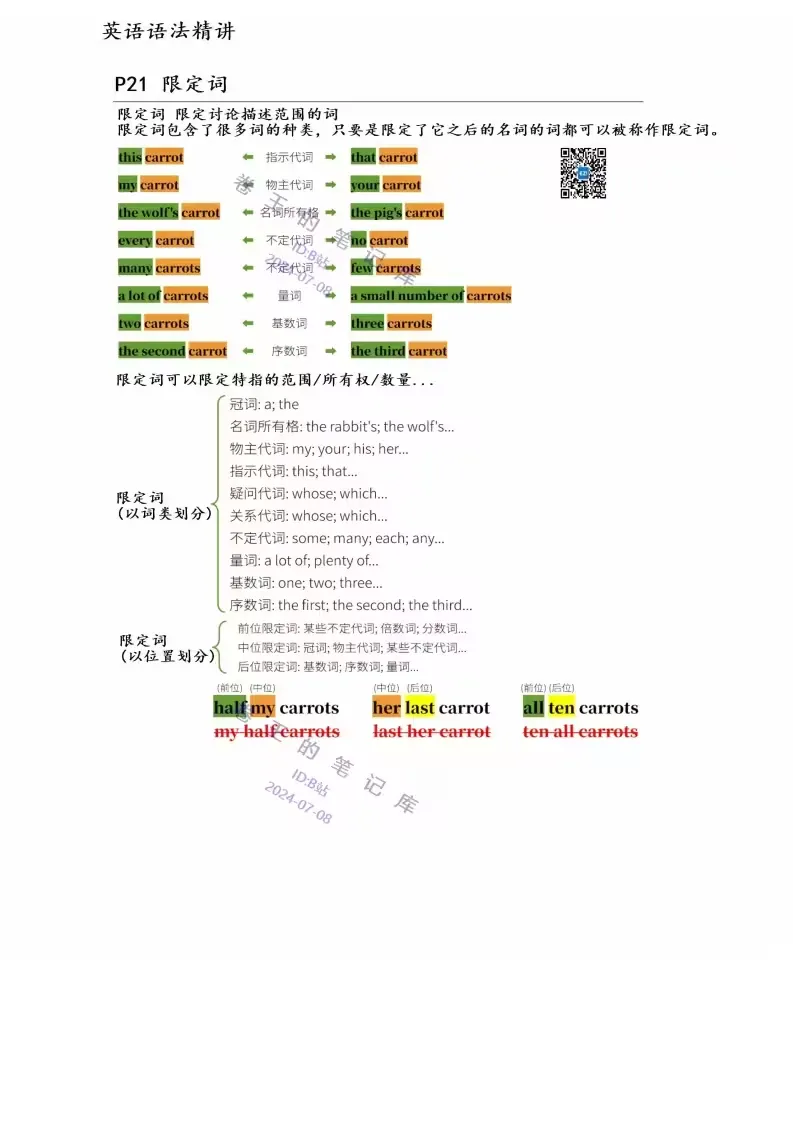独立主格
[逻辑主语与真正的主语不一致,相对”独立”]
- Because he was invited by the wolf, the rabbit decided to go to the party.
- 因为兔子被狼邀请了,所以兔子决定去参加聚会.
- Invited by the wolf, the rabbit decided to go to the party.
- Because the wolf invited him, the rabbit decided to go to the party.
- The wolf(逻辑主语) inviting him, the rabbit decided to go to the party.
the wolf在语法上称为动词invite的逻辑主语,也就是独立主格中的主格,其独立于真正的主语之外。其并不等同于主语。
-
The rabbit is lying in bed, a carrot is still held in his hand.
-
名词+动词不定式
-
名词+名词
-
名词+形容词
-
名词+副词
-
名词+介词短语
-
名词+现在分词
- The weather permitting, the rabbit will go out.
- 天气允许的话,兔子就出门
-
名词+过去分词
- The rabbit is lying in bed, a carrot still held in his hand.
- 兔子正躺在床上, 胡萝卜仍在他手中.
-
名词+动词不定式
- The rabbit to come(), the wolf is overjoyed.
- 兔子要来, 狼乐翻天
-
不定代词+名词
- Many animals went to the party, some of them (being) rabbits and wolves.
- 许多动物去了聚会, 它们中有一些是兔子和狼.
-
不定代词+形容词
- Many animals went to the party, some of them (being) happy.
- 许多动物去了聚会, 他们中的一些很开心
-
名词+副词
- The rabbit sat on a chair, head (being) down.
- 兔子坐在一张椅子上, 头垂着.
-
名词+介词短语
- The rabbit came in, carrot (being) in hand.
- 兔子进来了,手里拿着胡萝卜.
他们更像包含be动词的独立主格,也就是名词/代词+be动词的现在分词being,然后再把being省略掉。 独立主格结构: 过去分词(被动/完成), 现在分词(主动/进行), 不定式
- with+宾语+宾语补语
- With the work finished, the rabbit went home.
- 工作完成后, 兔子回家了.
- The rabbit came in, with a carrot in his hand.
- The rabbit came in, carrot in hand.
- 兔子进来了, 手里拿着一根胡萝卜
助动词
-
助动词:辅助构成谓语, 自己本身不能做谓语动词
-
eat不能独立表示未来时间,需要借助助动词will来表达。
- 助动词本身不能独立表达完整句意。
- 如a rabbit will a carrot是不对的,必须要加上实义动词the rabbit will eat a carrot.
-
助动词的两个基本特征:
- 辅助主动词;
- 不能像主动词那样单独做谓语动词。(can这样的情态动词也是助动词的一种)
-
虽然can这样的动词被语法体系归类为情态动词,但是情态动词:
- 起辅助主动词的作用;
- 不能单独作谓语动词。
- 所以说到底,can这样的情态动词还是助动词的一种,也可称作情态助动词。
-
语法体系中为何将助动词和情态动词分开:
- 语法体系认为,助动词只起辅助作用,本身不该含有实际意义。
- 而像can这样的含有实际意义的词,应当被区分开来。
-
基于辅助主动词来构成语法概念和不能单独作谓语动词这两条,情态动词应归位为助动词的 一类,可称为情态助动词。
-
到底什么是助动词:
- 基本助动词:
- be,do,have.他们在作助动词时,本身是没有实际含义的。
- 他们除了做助动词,本身还可以做实义动词。也就是可以单独作谓语动词。(can灌装 do做 will意愿 used使用 need需要 dare敢 have有 be是)
- be(存在),do(做),have(有)
- 情态助动词包括:
- 当他们做助动词时,本身没有实际意义,但是当他们单独做谓语动词时,也是拥有实际意义的。
- could是can的过去式,might是may的过去式,should是shall的过去式。
- 半助动词,既像主动词,又像助动词
- The rabbit is able to eat a carrot
- The rabbit is going to eat a carrot
- The rabbit is about to eat a carrot
- The rabbit had better eat a carrot
- 基本助动词的应用
- The rabbit is eating a carrot (be -> is 现在进行时)
- The carrot was eaten by the rabbit (be -> was)
- The carrot has eaten a carrot
- The rabbit does like coins! (do -> does 强调)
- The rabbit does not like freeloaders (辅助构成否定)
- 基本助动词:
-
情态助动词的应用:can/could可以译作有能力做某事,或者会,可以
- 表能力
- I could kill a wolf by hand
- 我能徒手杀死一匹狼
- 表请求或许可
- Can/Could I borrow your book?
- 这里的could并不表示过去,而是一种更礼貌更委婉的表达。
- may/might也有表达请求、许可的意思。如:
- May/might(might更委婉) I borrow your book?
- Yes,of course.
- 表可能性:
- Anything can happen.
- Anything could happen.(could表示对过去的推测,也可表示现在的可能性,不过可能性比can更小一点)
- 什么事儿都可能发生
- may/might表示可能性的程度小于can/could,所以翻译为也许、大概、可能。如:
- The rabbit isn’t here.He may be at home.(不确定)
- 若用might,则暗示可能性更小
- The rabbit isn’t here. He might be at home.(非常不确定)
- 表虚拟语气
- The rabbit could have gone(表本可以做但实际没有做,表对过去的虚拟表达) home earlier,but he didn’t finish work on time.
- 兔子本可以早回家的,但他没按时完成工作。
- 表祝愿
- may表示祝愿,通常放在句首。(此种含义不包含might)
- May you succeed!
- 祝你成功!
- 表必须(must)
- You must finish your homework first!
- 你必须先做完作业
- 表禁止(mustn’t表必须不,只有禁止的含义)
- You must not (mustn’t) smoke here.(must not或mustn’t表禁止,不是不必须,而是必须不)
- 禁止你在此吸烟。
- Must I give you a gift?
- 我必须要给你送礼物吗?
- No, you need(情态动词) not give me a gift.
- 不,你不是必须要给我礼物。
- No, you don’t have to(have to属于半助动词) give me a gift.
- 不,你不是必须给我礼物。
- 表推测
- The light is on. The rabbit must be at home.(很确定兔子在家)
- 灯亮着,兔子一定在家。
- The light isn’t on. The rabbit can’t be at home.
- 灯不亮,兔子不可能在家。
- must表推测只能用在肯定句中,否定句只能用can’t.
- 构成将来时(will/would)
- The rabbit will eat a carrot.
- 兔子将吃一根胡萝卜。
- The rabbit would eat a carrot.(过去将来时)
- 兔子(在过去某一时间)将吃胡萝卜
- 表示请求、建议(will/would)
- Will you lend me that book?
- 你愿意借给我那本书吗?
- Would(更委婉) you please lend me that book?
- 请你借给我那本书好吗?
- 表推测,假设(will/would)
- Ask him.He will/would know. (would表推测,比will的程度更弱。)
- 问他吧, 他会/可能知道
will和would区别: Will是站在现在看将来,而would是从过去的角度看将来。同样是表示将来,will语气比较肯定,would语气非常不确信。因为would讨论的事情,发生可能性相对较小,所以很自然就发展出礼貌和委婉的语气在里面了。
- What would the rabbit eat for dinner?
- 兔子可能吃什么
- He would eat a carrot.
- 他可能要吃一根胡萝卜
- shall/should
- 构成将来时:
- I will be there at 9AM.
- I shall be there at 9AM.
- 我早上9点会在那里
- 用来征求意见:
- Shall we meet at 9AM?
- 我们早上9点见面如何?
- 表警告命令:
- You shall not pass!
- 你不许通过
- You shall not murder, You shall not steal, You shall not covet
- 你不可杀人, 不可偷窃, 不可起贪心
- 表应当:
- We should treat the rabbit wellness.
- 我们应该对兔子好点。
- If should(根据具体情况推测,所以可能性较大) rain tomorrow.
- 明天应该下雨
- 表竟然(惊讶、愤怒、失望):
- It’s surprising that he should be late.
- 真的很奇怪,他竟然会迟到。
- 构成虚拟语气
- If it should rain tomorrow,I wouldn’t go.
- 如果明天下雨,我就不去了。
- You should have eaten the carrot.
- 你应该吃掉那根胡萝卜。(但你没吃,should表与过去相反的虚拟语气)
- 构成将来时:
- ought to 表应该,但语气更强烈:
- We ought to treat the rabbit well.
- 我们应该对兔子好些。
- need最常见的用法是做实义动词,表需要
- I need your money.
- 我需要你的钱
- 但need 也可以做情态动词,表需要,有必要
- The rabbit need wait.
- 兔子需要等待。
- The rabbit needs to wait.(但这里的needs不是情态动词,而是谓语动词)
- 兔子需要等待。
- The rabbit need not wait.(做助动词后可直接跟not)
- 兔子不必等待。
- The rabbit does not need to wait.(need做实义动词,不能再后面直接跟not,需要借助助动词do来完成否定)
- 兔子不必等待。
- dare跟need 类似
- 做实义动词时,表敢,挑战,冒险
- 做情态动词,表敢,一般用于否定句和疑问句中:
- The rabbit dare not tell the truth to the wolf.
- 兔子不敢对狼说出真相。
- How dare you!
- 你好大的胆子!
- used to,表示过去的动作,尤其是重复的动作,而且强调和现在的对比:
- The rabbit used to eat apples. Now he only eats carrots.
- 兔子过去习惯吃苹果,现在他只吃胡萝卜。
- The rabbit ate an apple.(相比之下就没有经常习惯的感觉)
- 兔子吃了一个苹果。
- 不要把used to和实义动词use(使用)以及动词词组be used to something/doing something习惯于… 混淆。
- Could I use your phone?
- 我可以用你的电话吗?
- I am used to getting up early.
- 我习惯早起
- 表能力
半助动词的应用
- be able to和 can 很像,但有区别,can的时态只有现在和过去时,所以一般表示的是现在和过去的能力,而be able to可以表达将来的能力。
- be able to是马上要做某事,时间更短
- I’ll be able to reach school on time if I leave right now.
- 如果我现在离开就能按时到学校
- 表过去的能力时用was/were able to往往表示”成功做成…”
- I was able to reach school on time because I left home early.
- 因为我离家很早所以按时到学校。
- be going to/be about to/be to
- 三个半助动词和will一样都表示将要做某事,但视具体语境有些微妙的区别。
- be going to有更强的主观能动性,含有计划做某事的意思,而且通常是很快就要做某事。如:
- I’m going to eat dinner at 6PM today.
- 我会在六点吃完饭。
- I will eat dinner at 6PMtoday.
- 我会在6点吃完饭。
- be to表被命令做某事
- You are to finish home work first.(和must finish home work有点像)
- 你要先做完作业。
- You must finish home work first.
- 你必须先做完作业。
- be to也可表示命中注定(因为是被命运命令)
- I think they’re to fall in love with each other.
- 我想他们注定会相爱。
- had better表最好做,暗含”如果不这么做,会有不好的后果”。
- You had better follow my orders.
- 你最好听我的命令。
- had better的缩写是’d better,缩写形式更常见。
基本助动词没有实际意义,情态动词、半助动词有实际含义。
使役动词
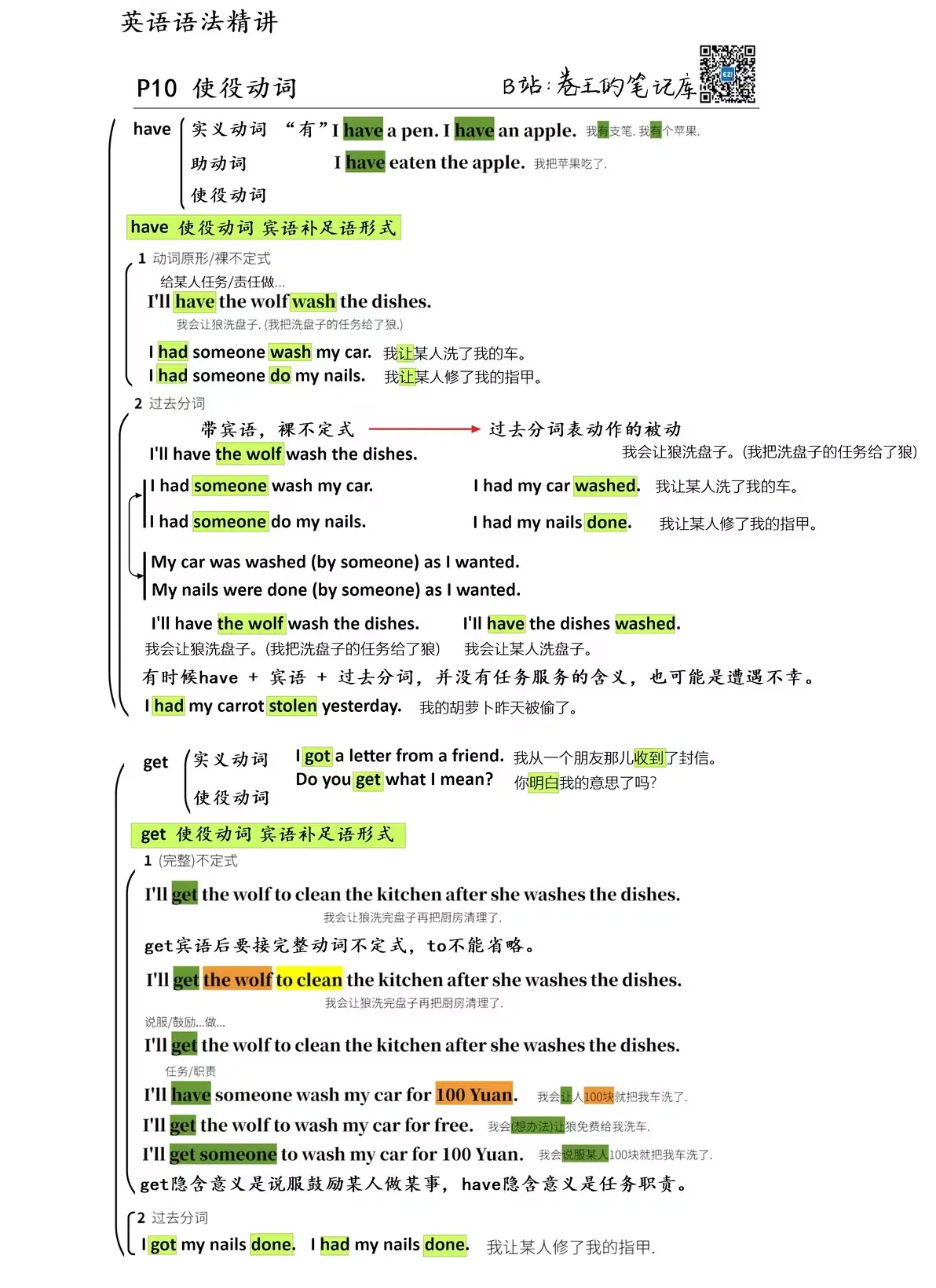
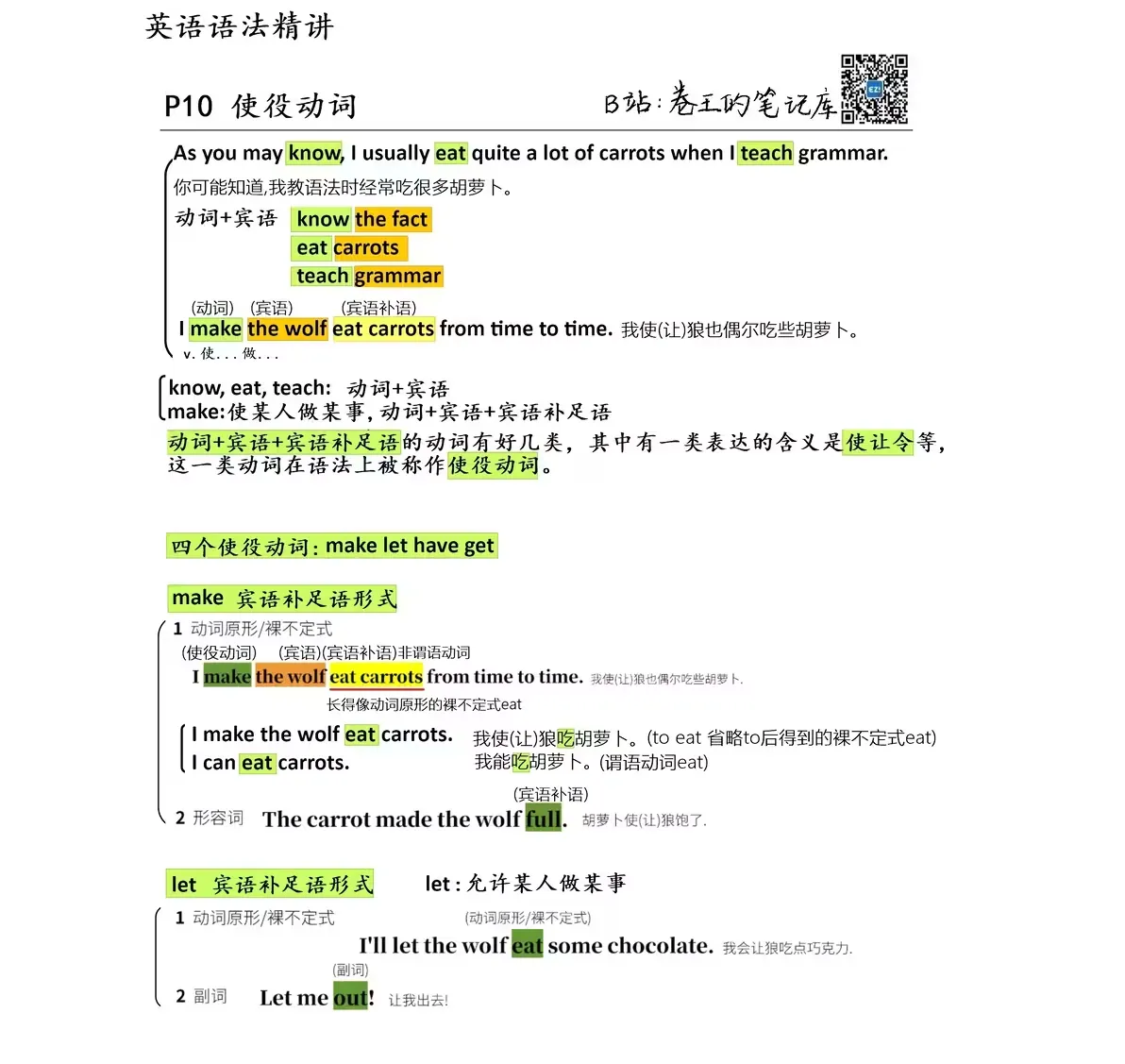
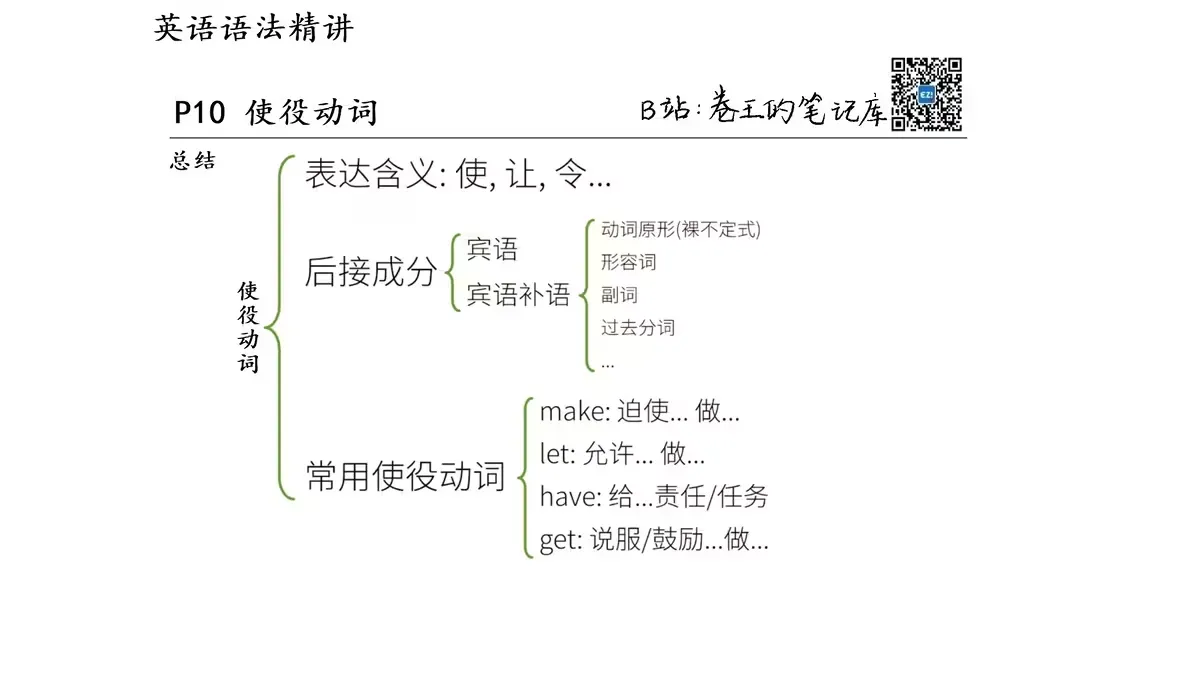
冠词
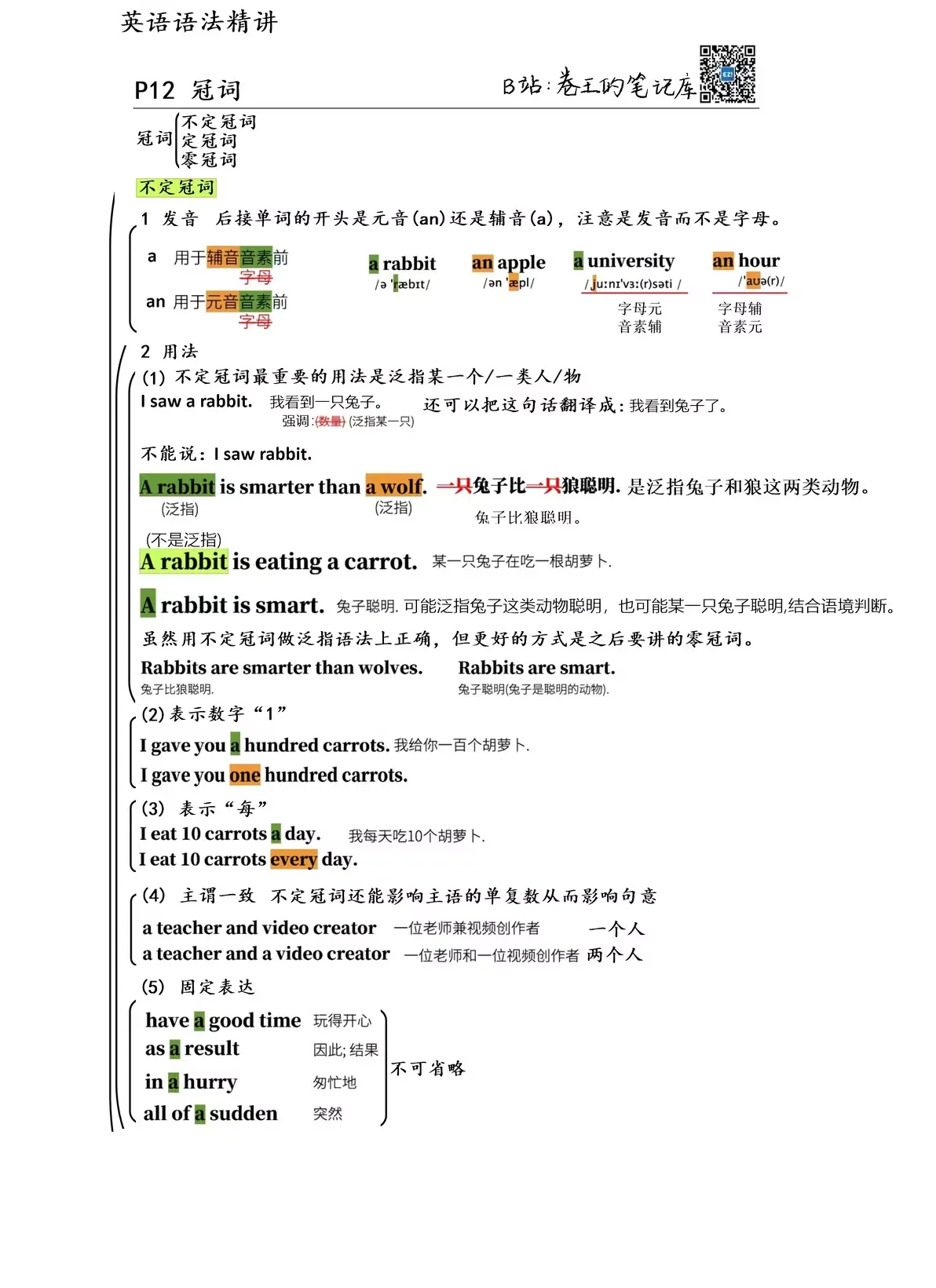
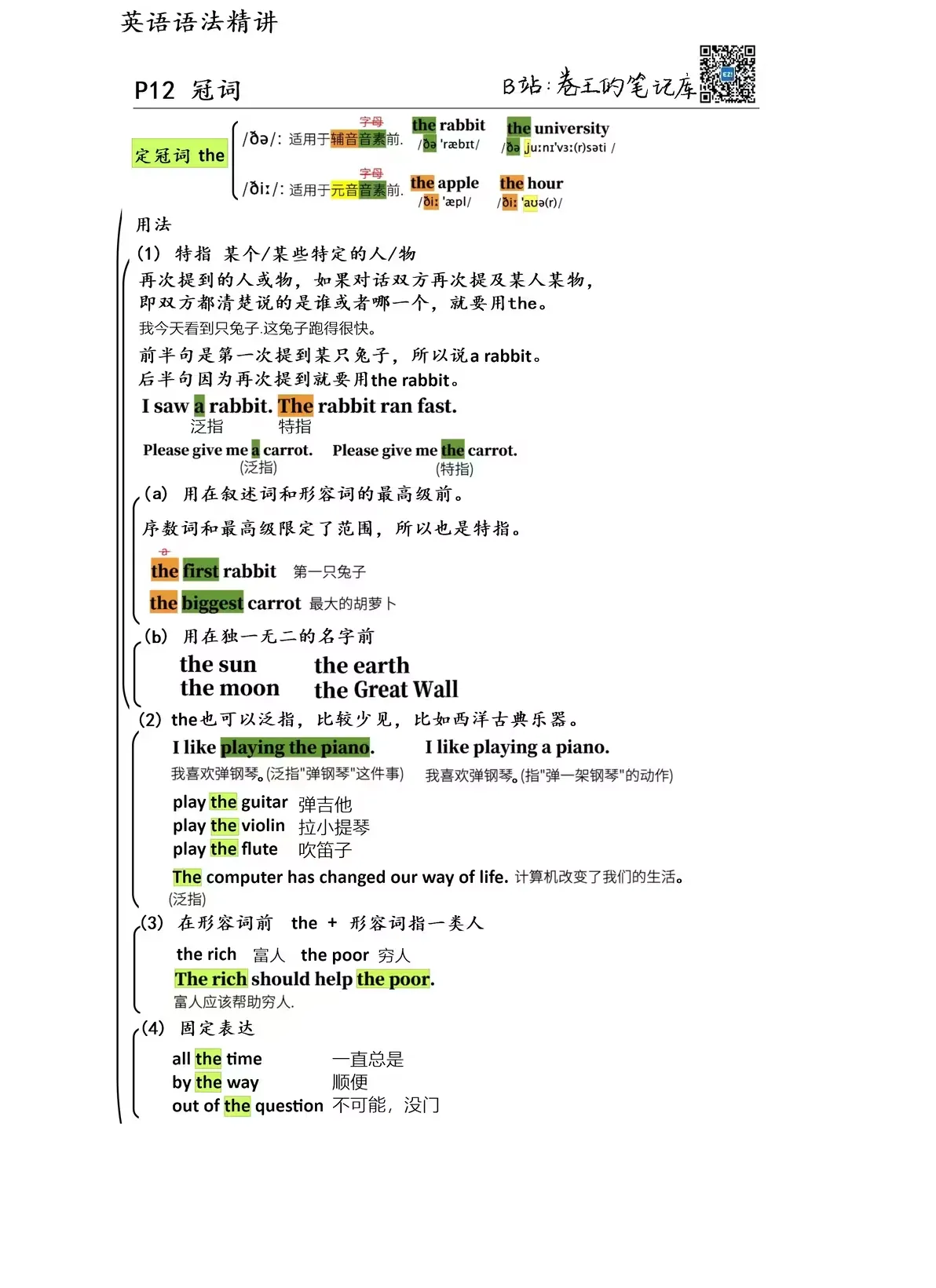
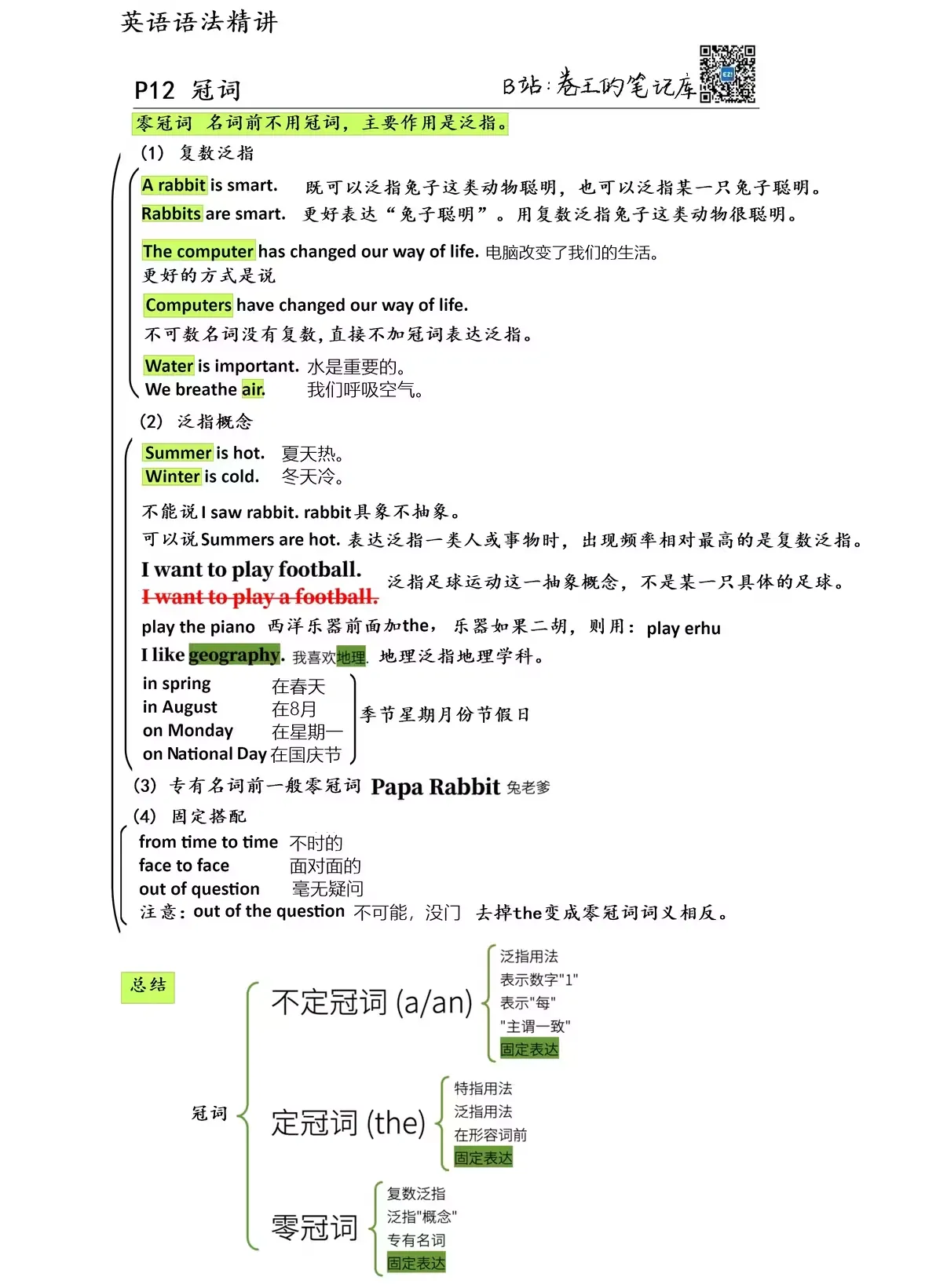
介词
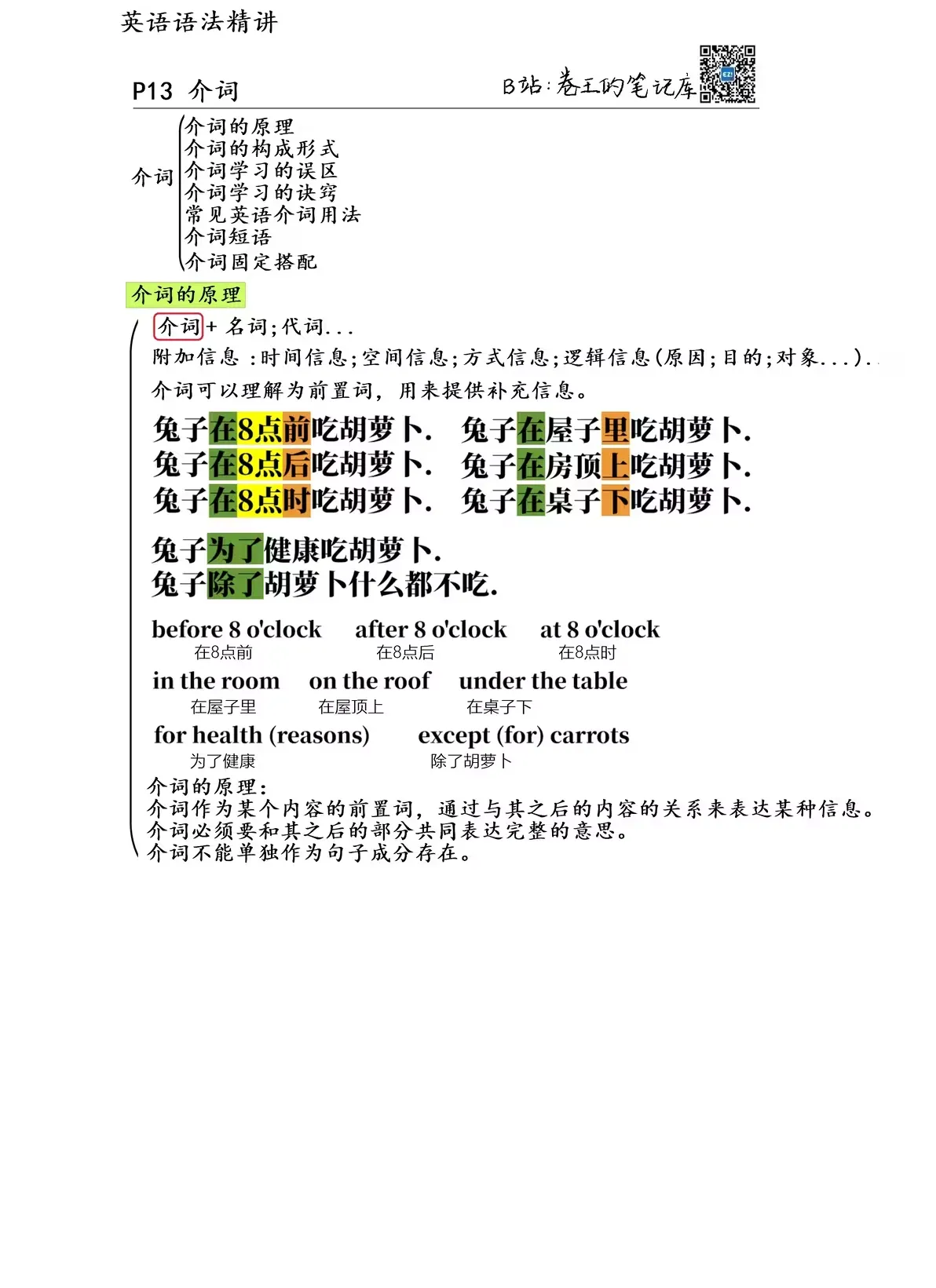
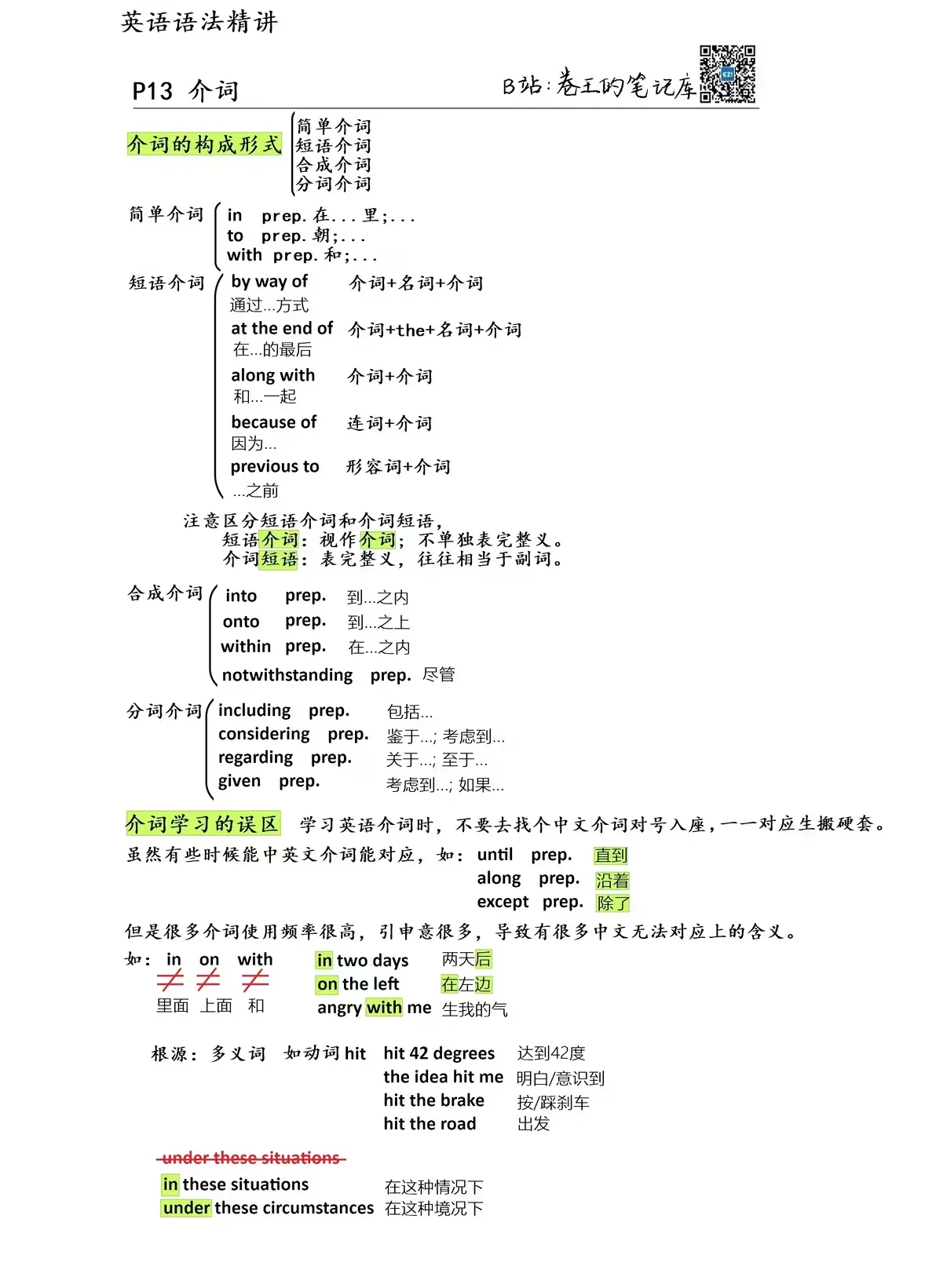
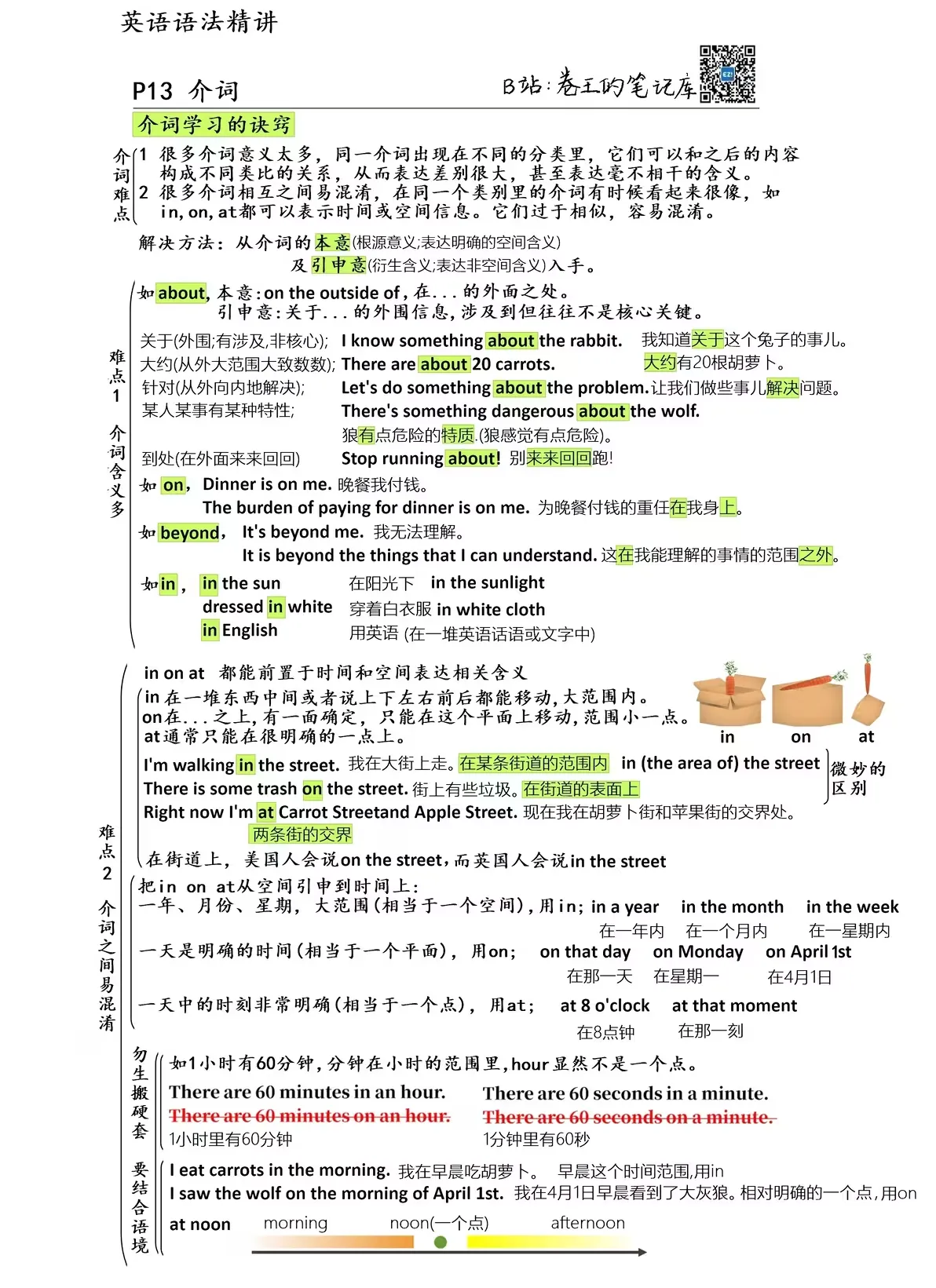
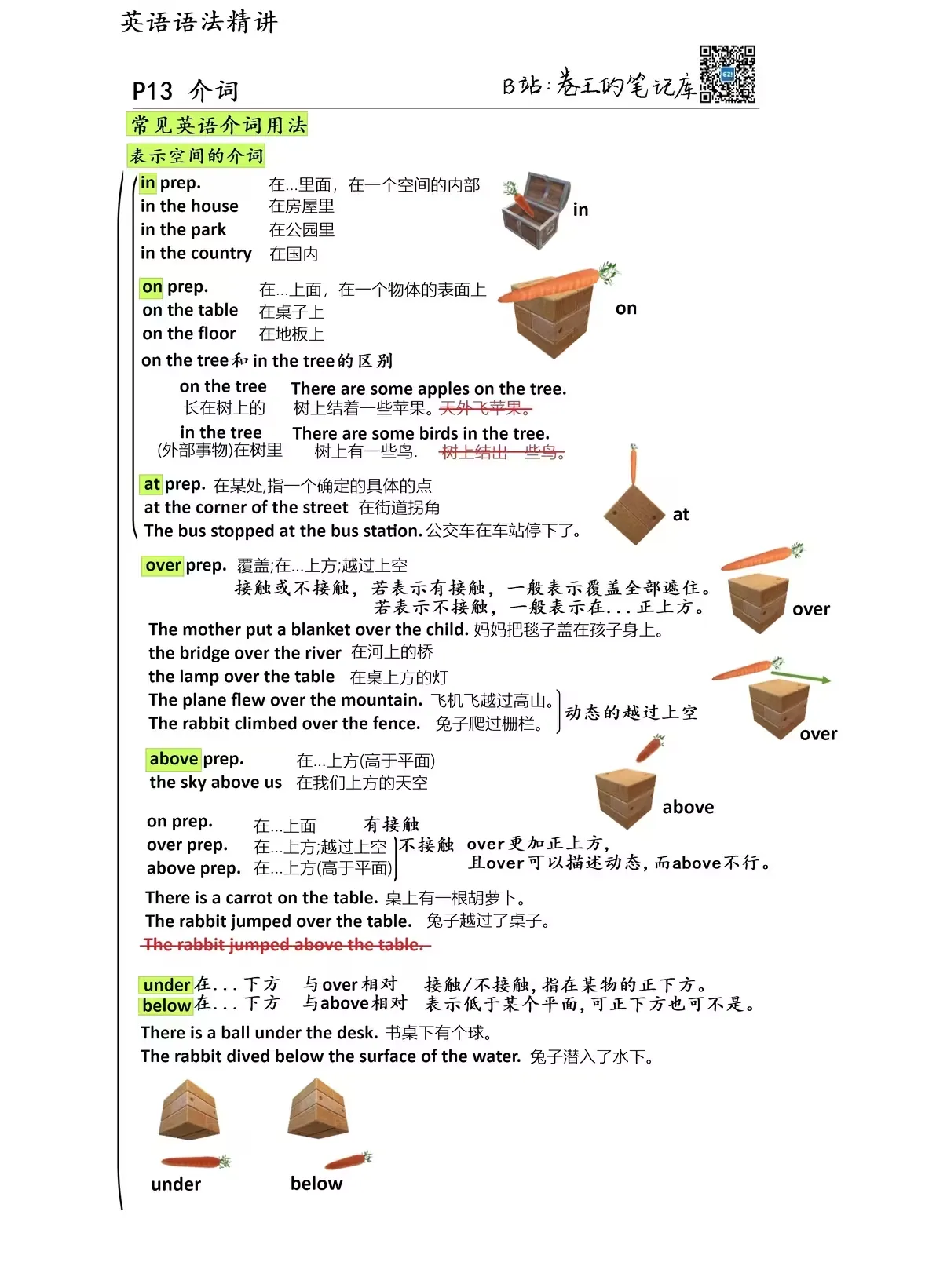
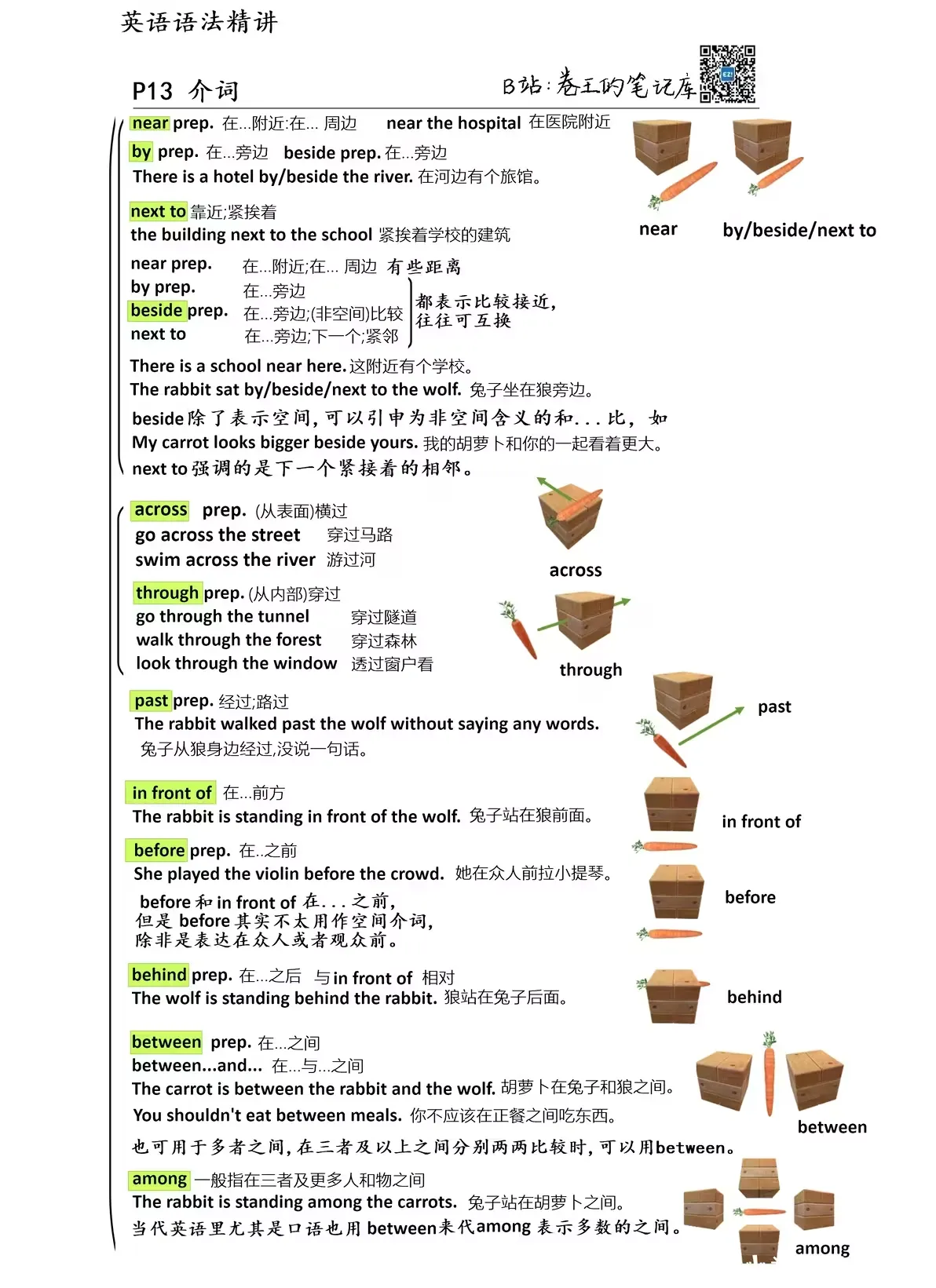
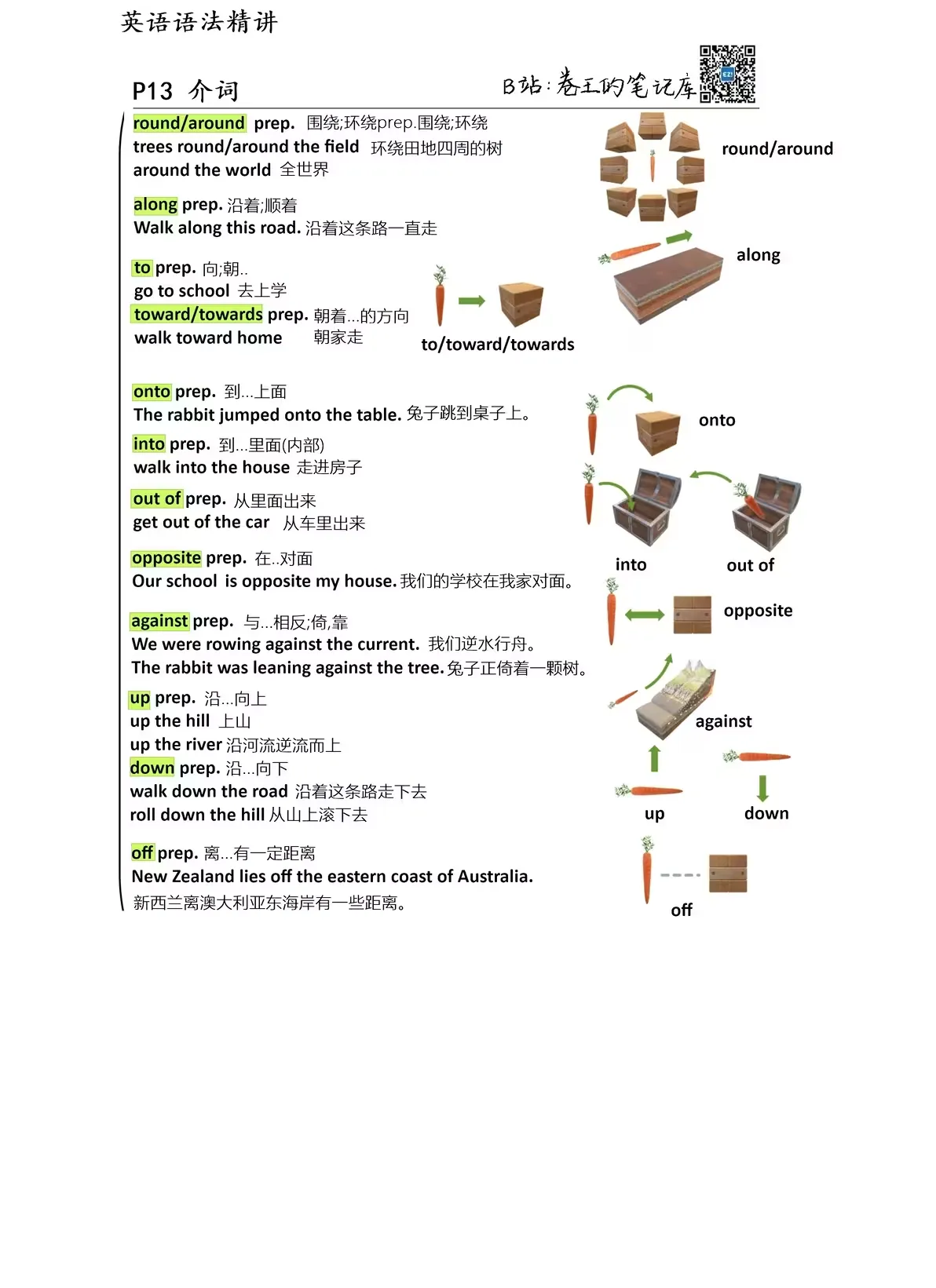
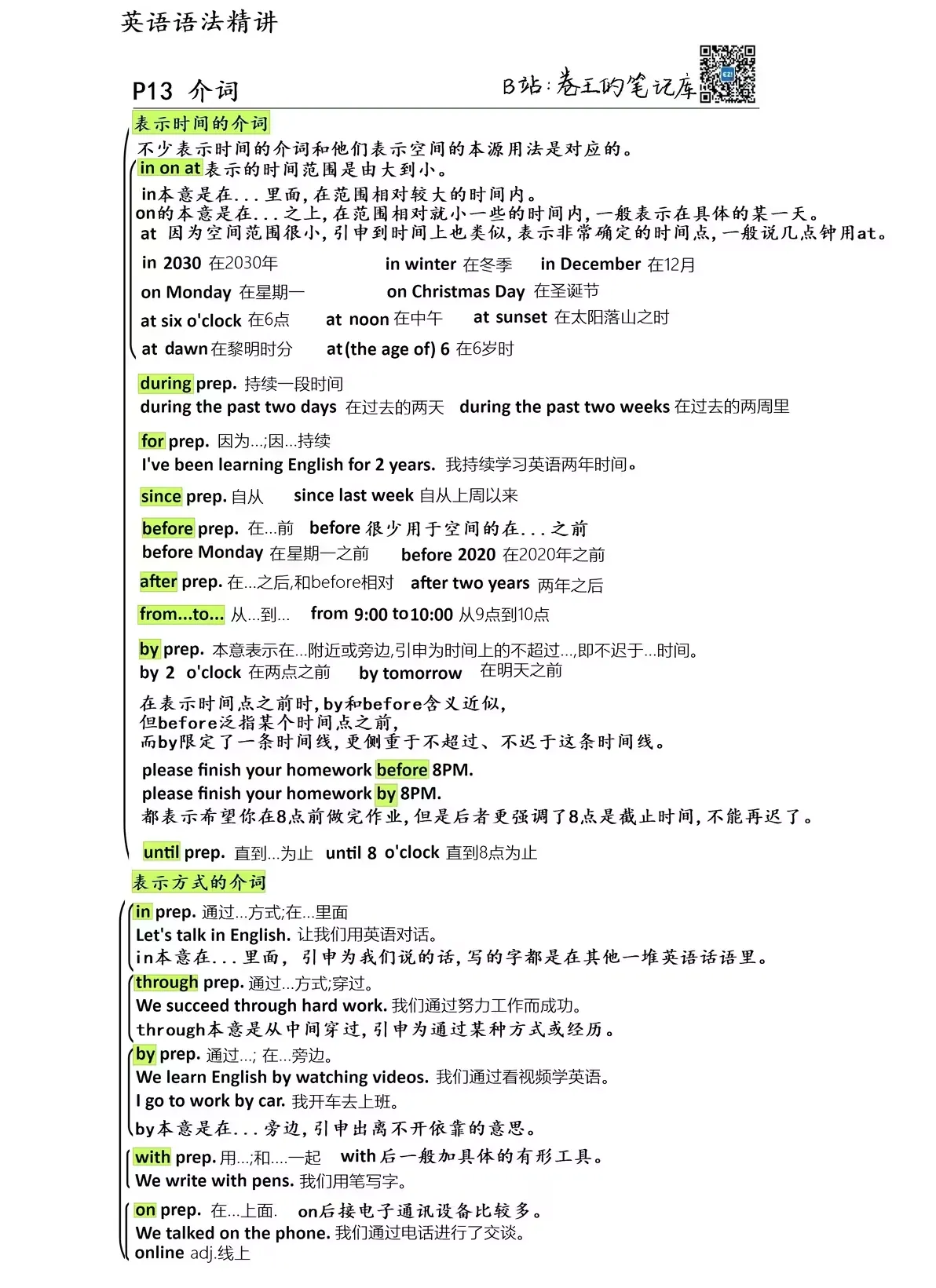
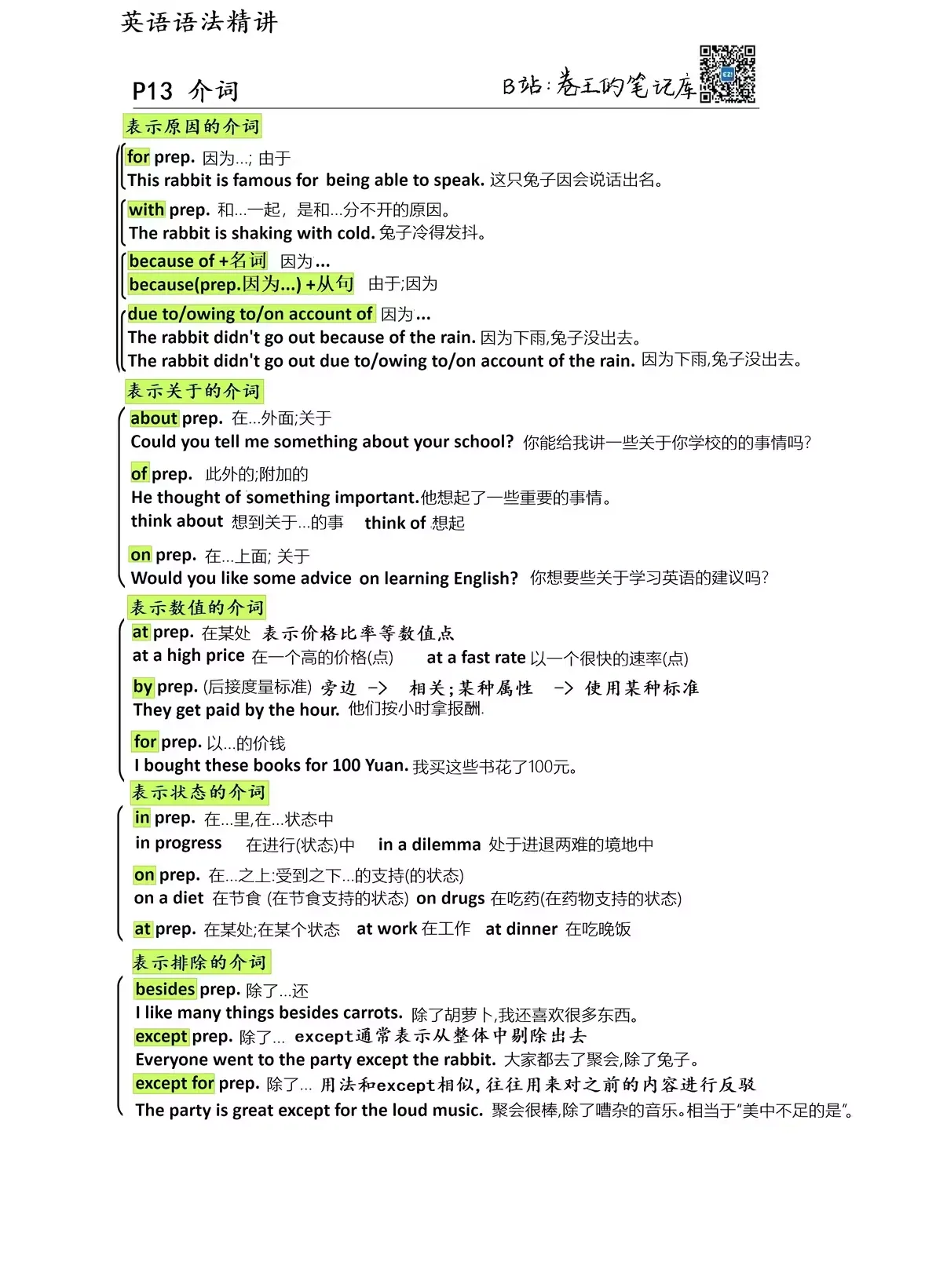
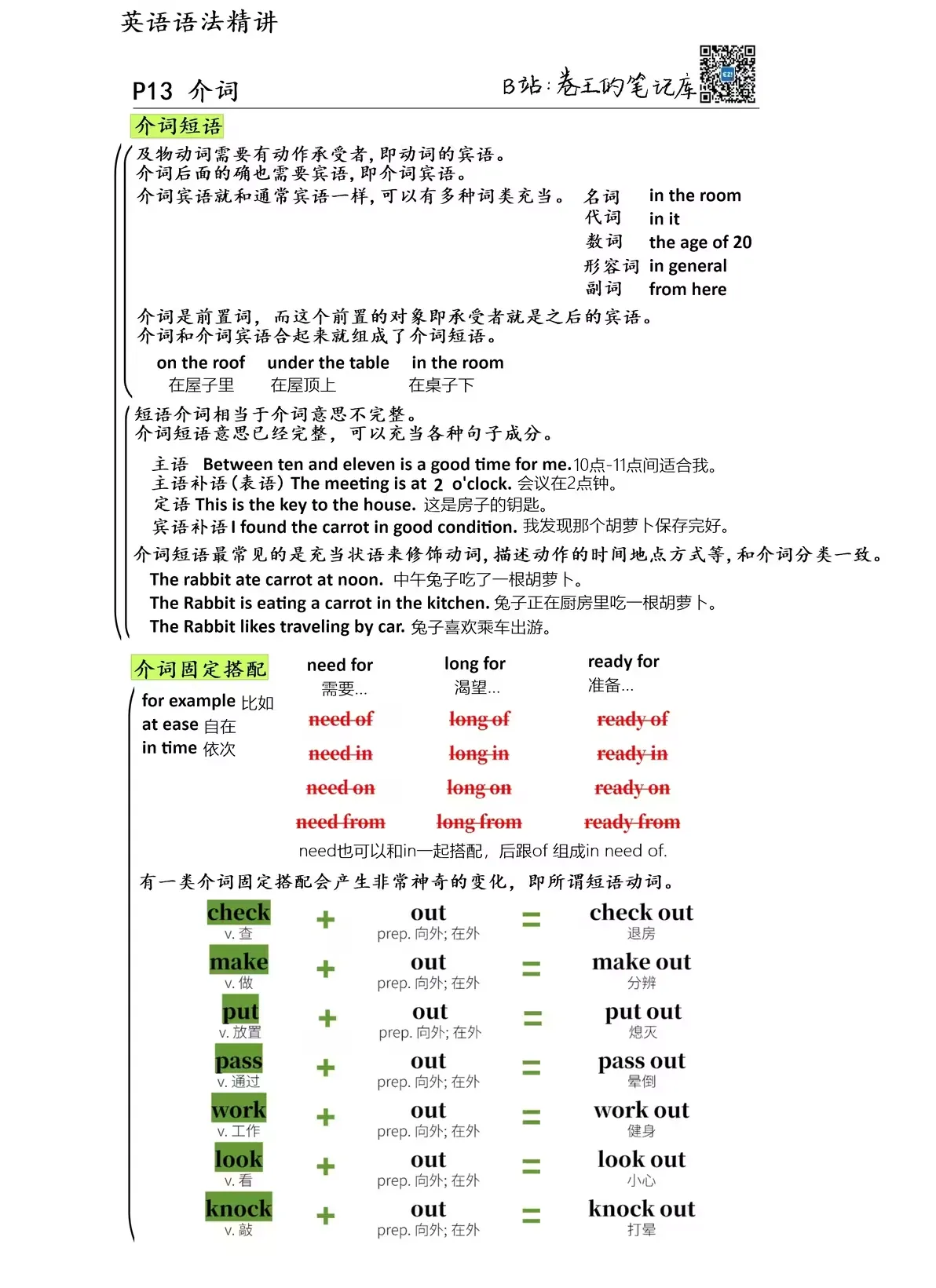
名词
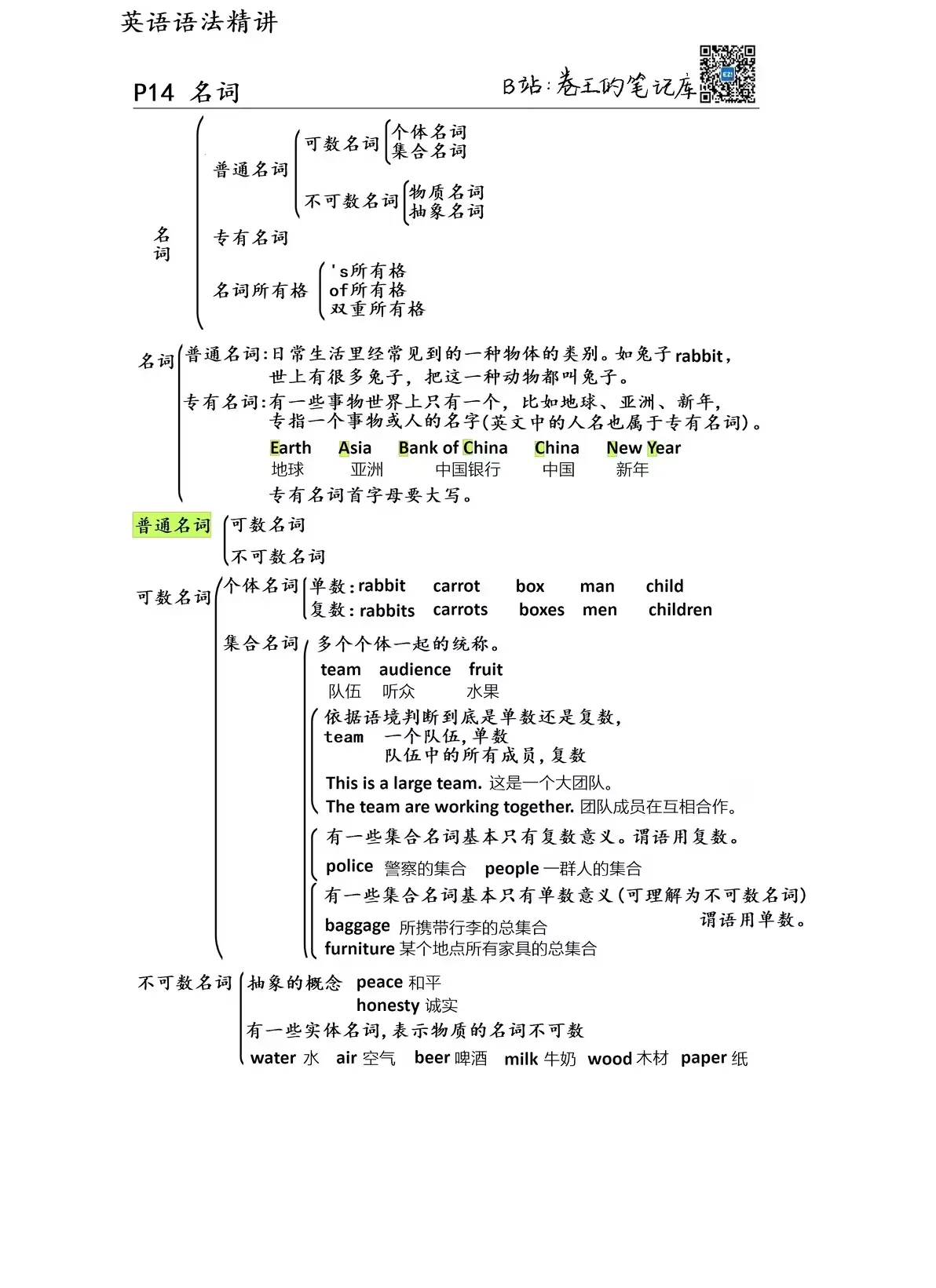
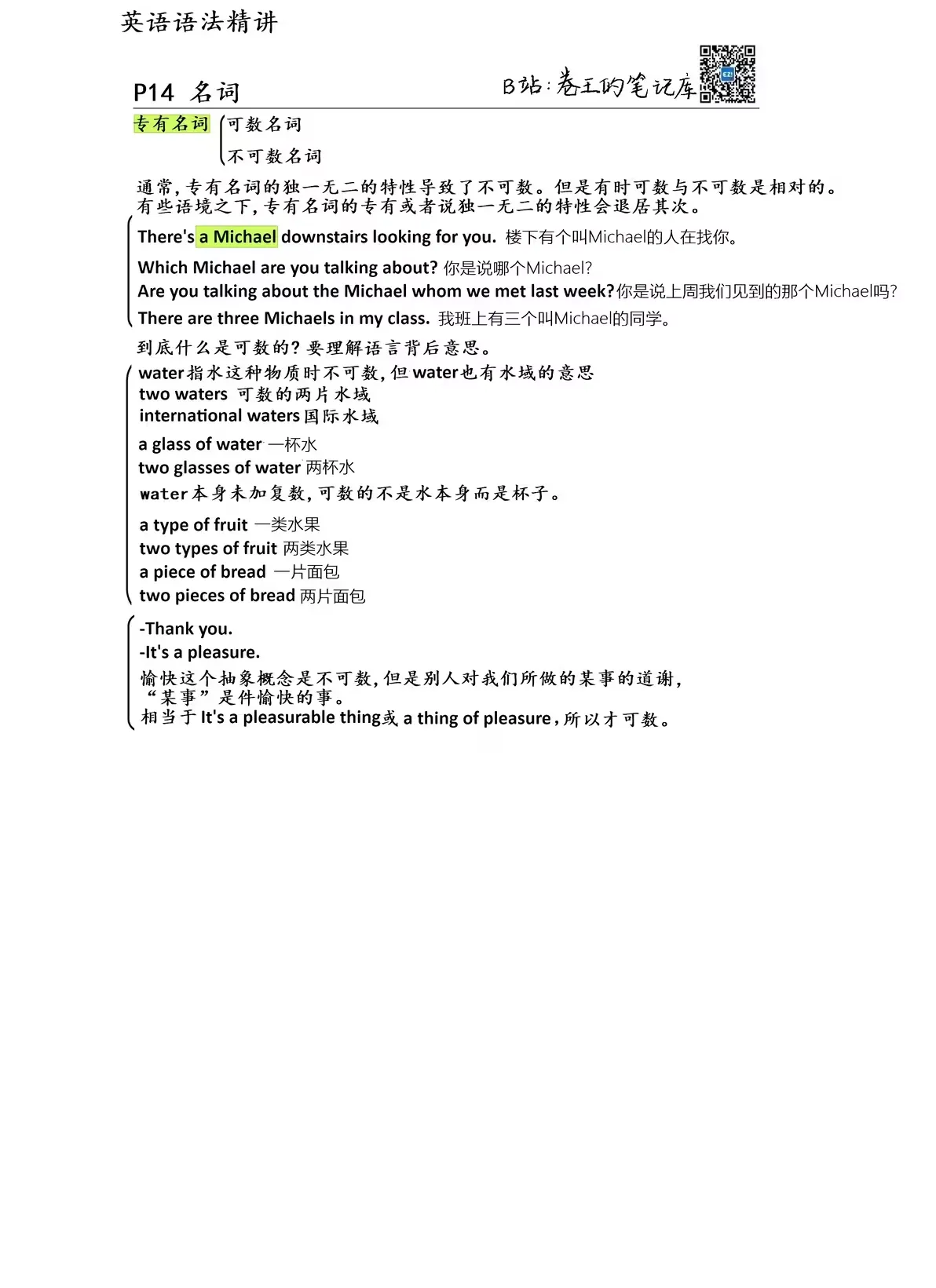
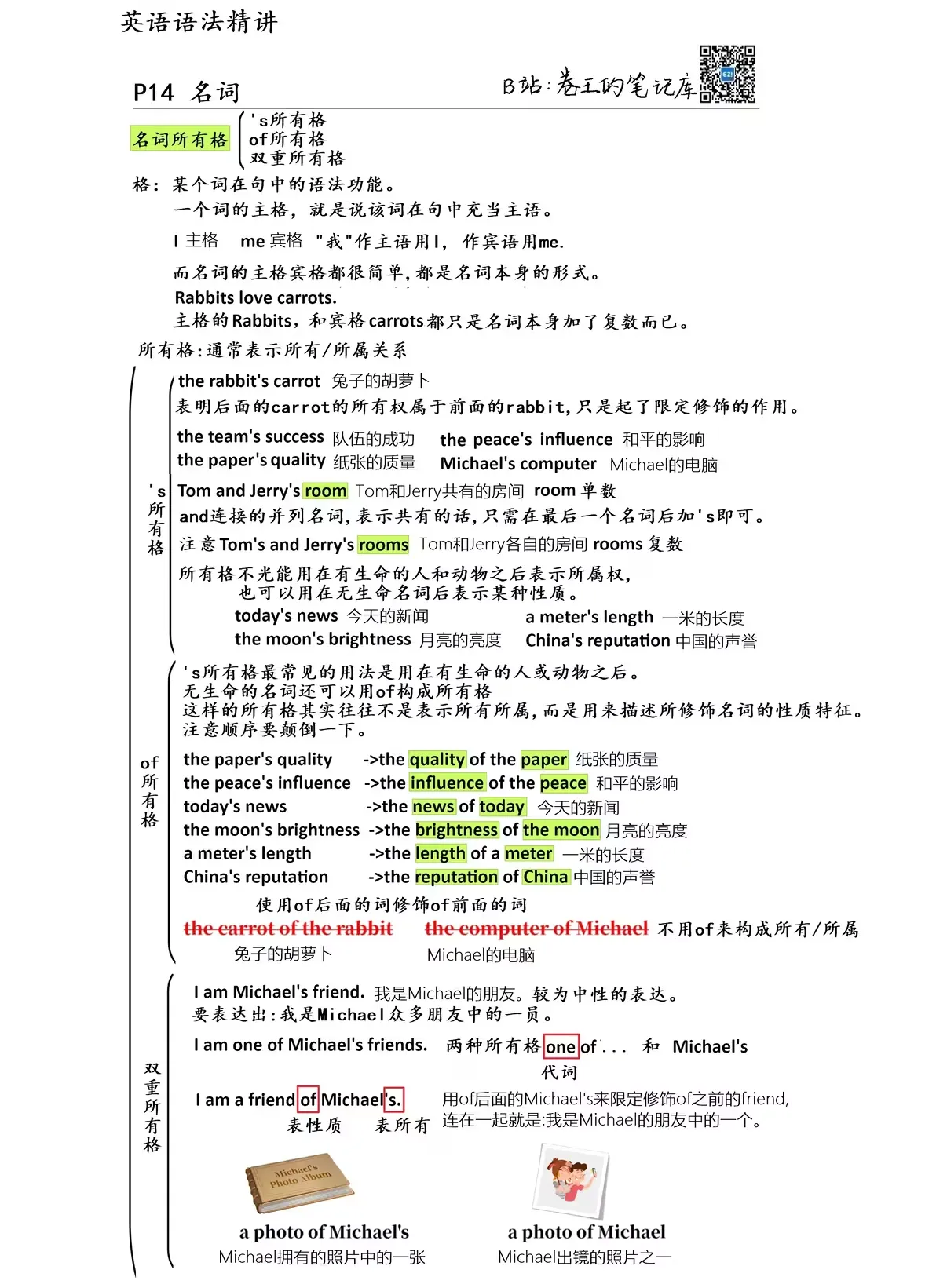
代词
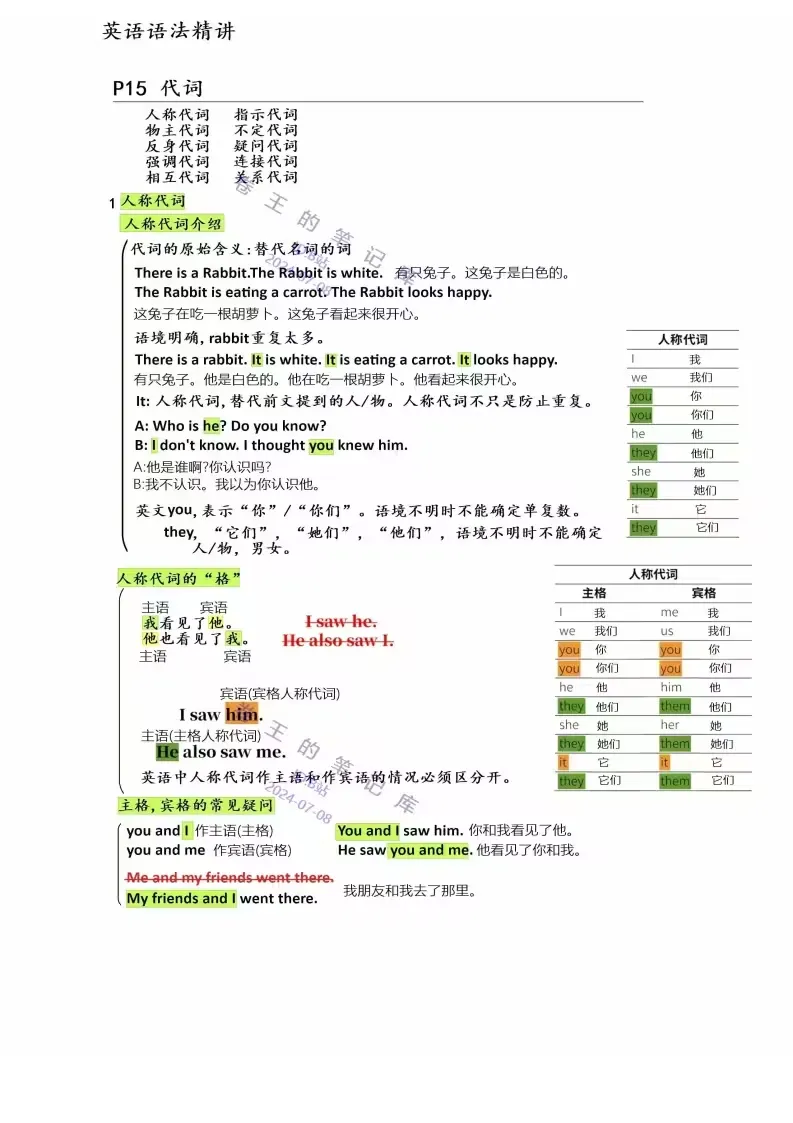
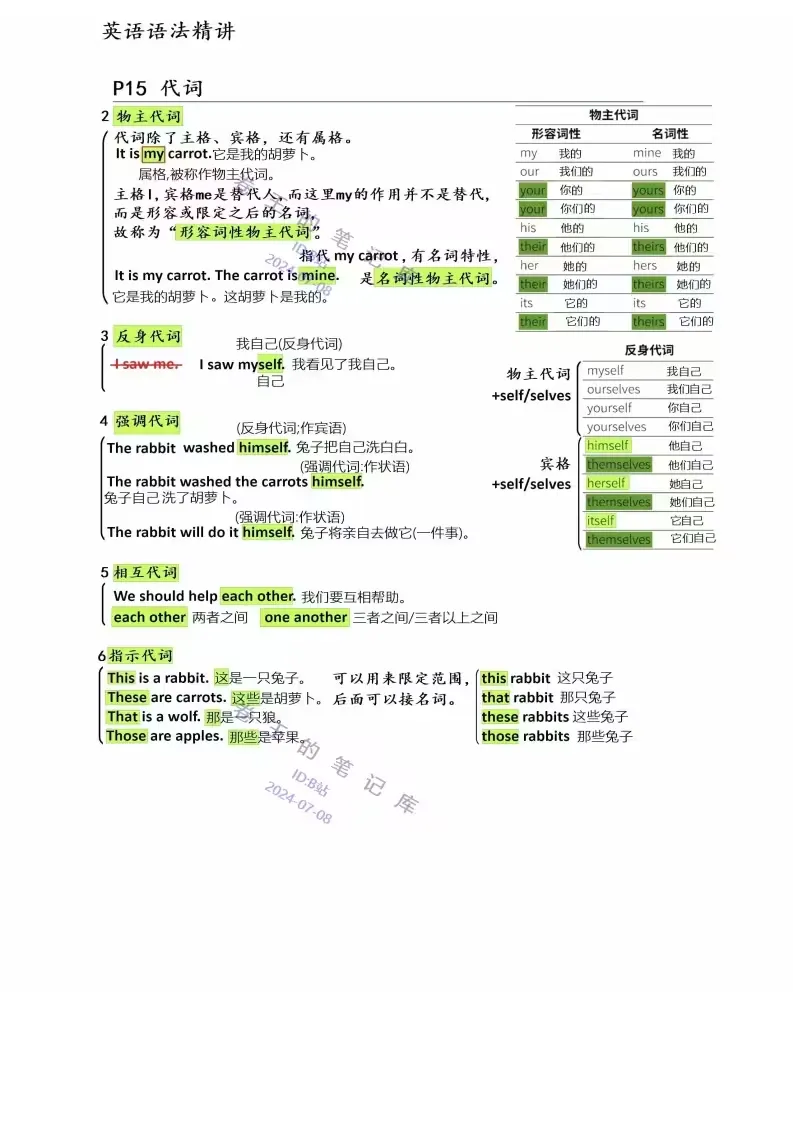
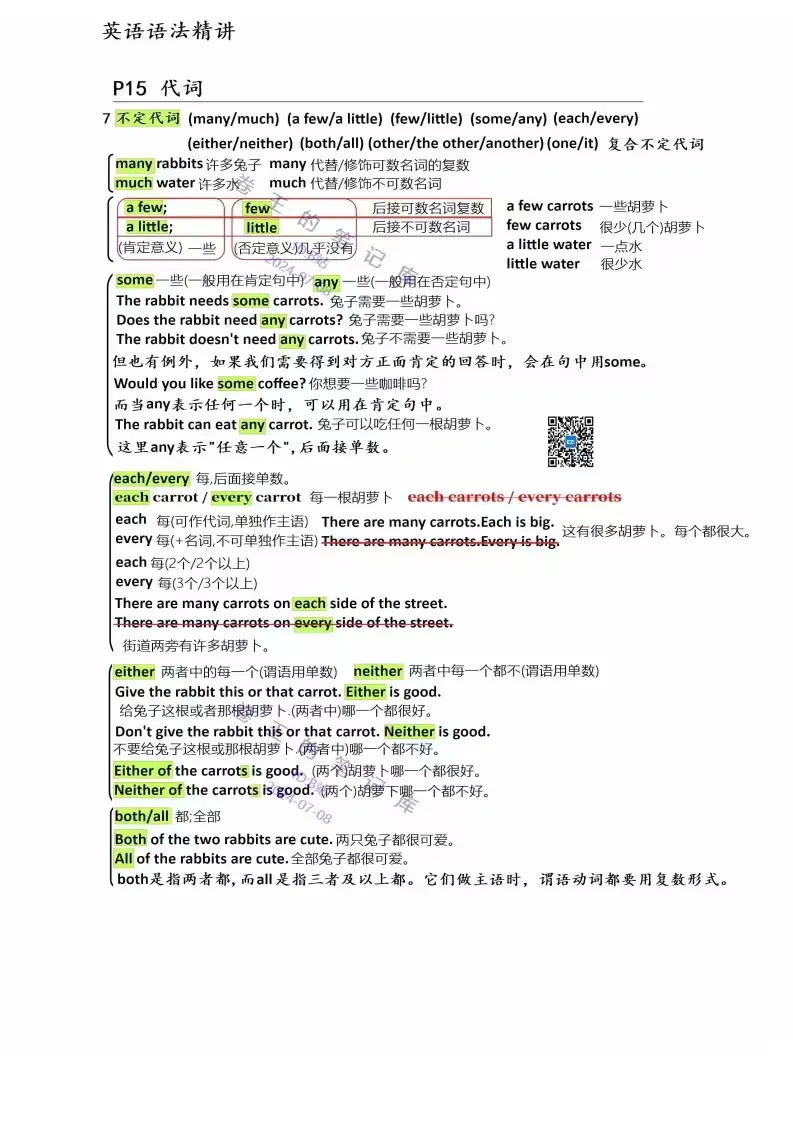
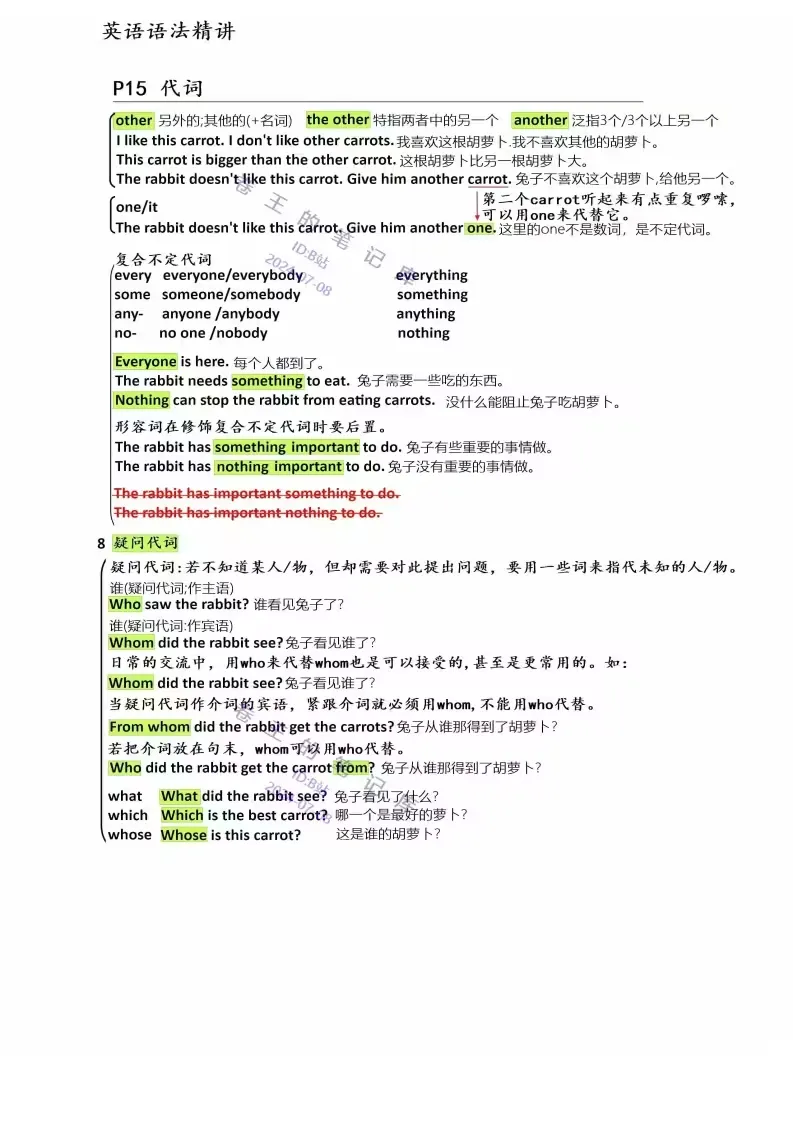
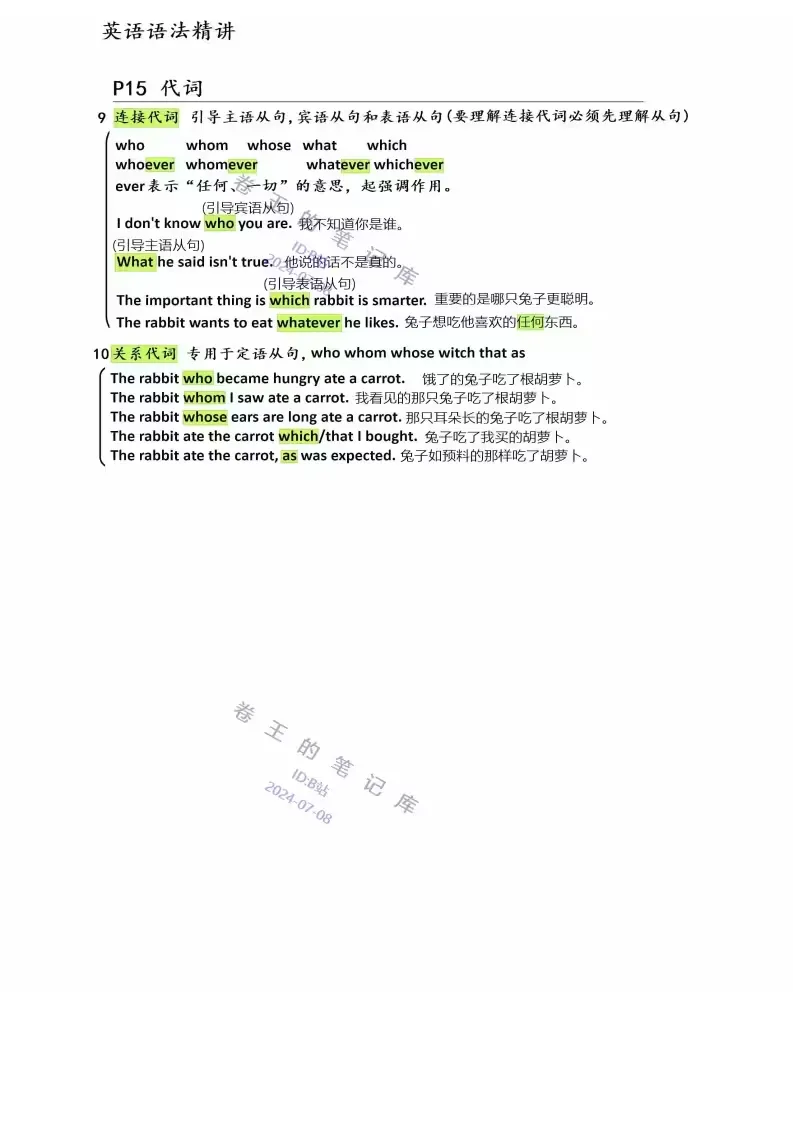
数词
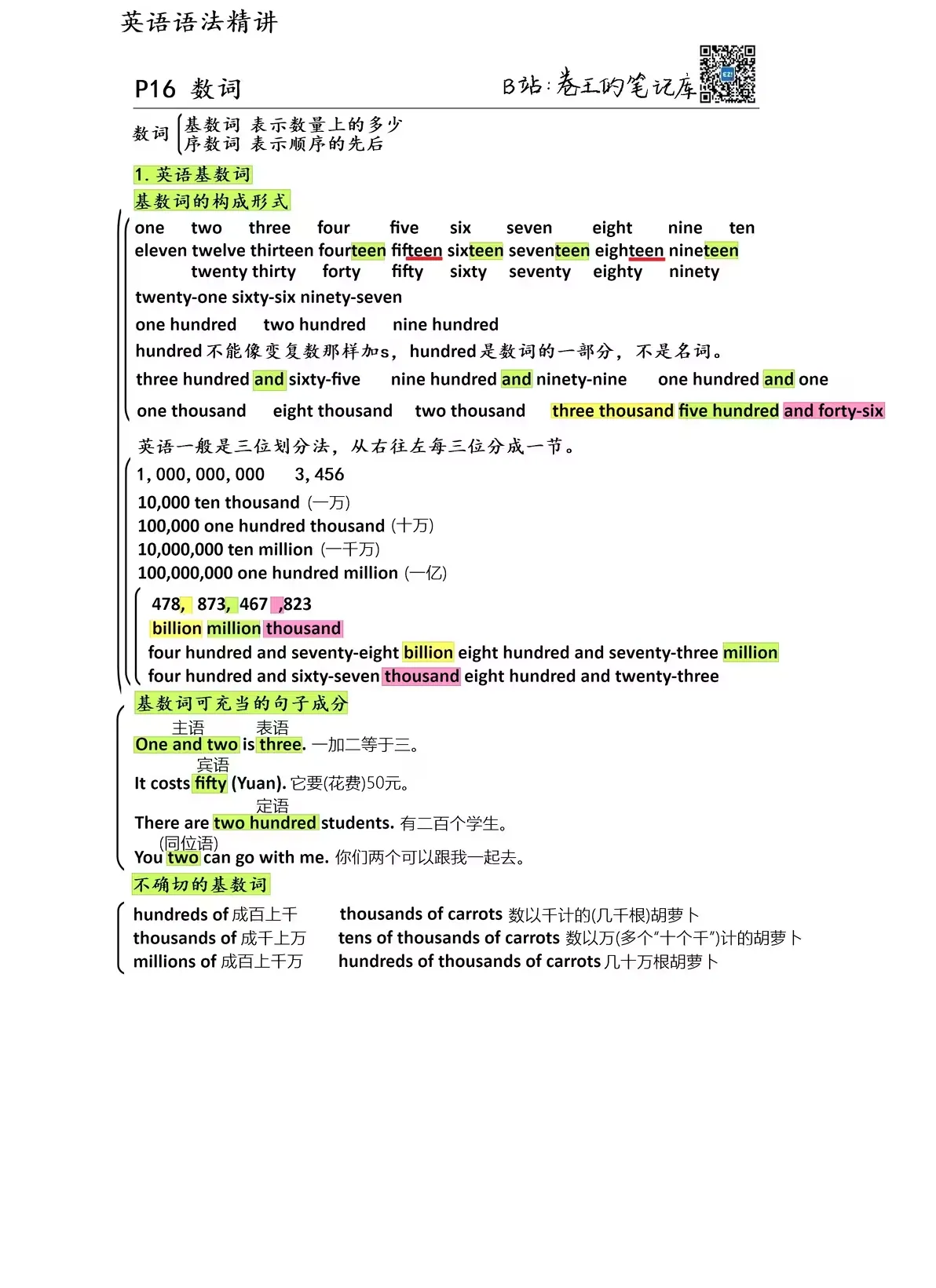
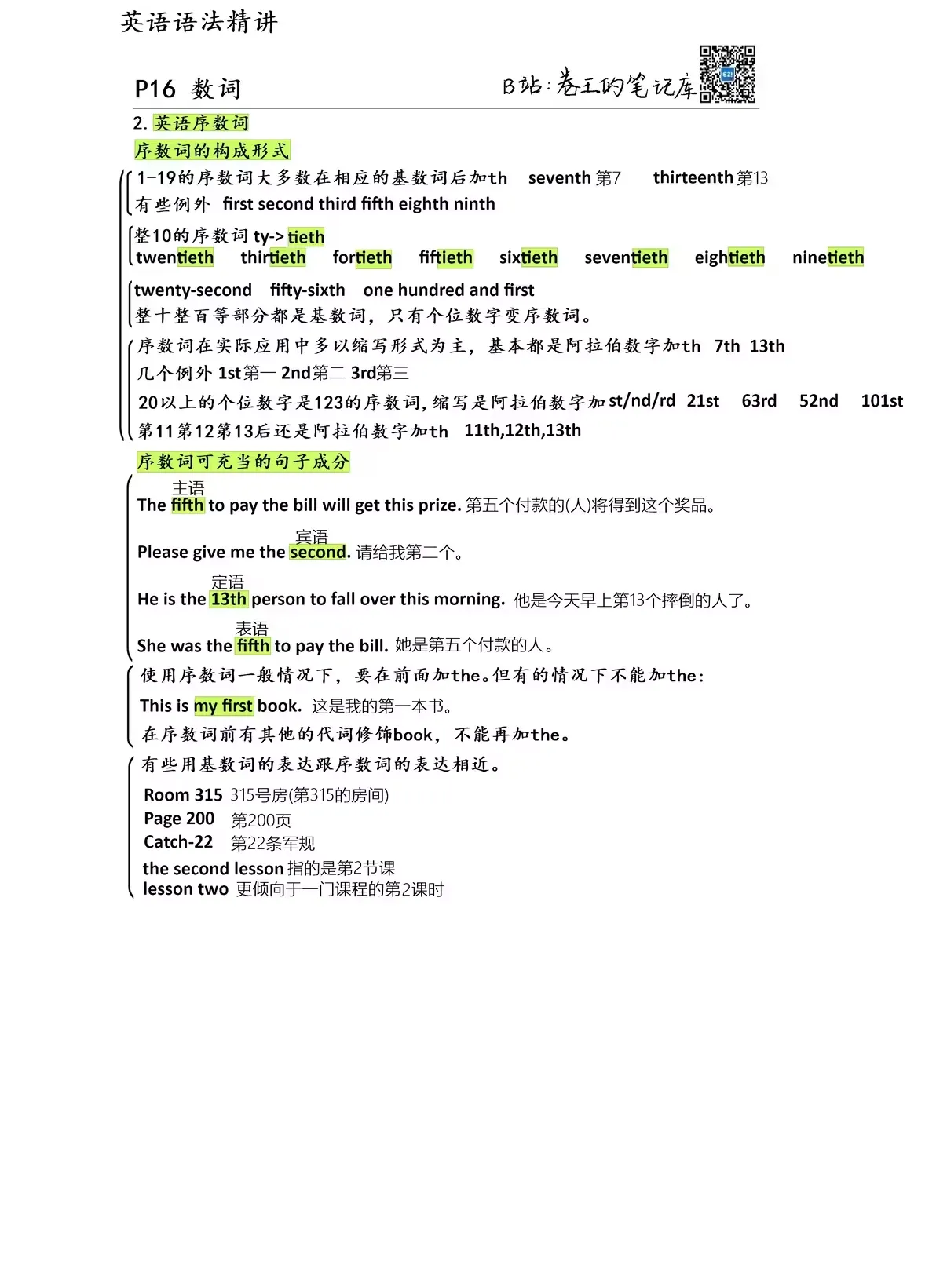
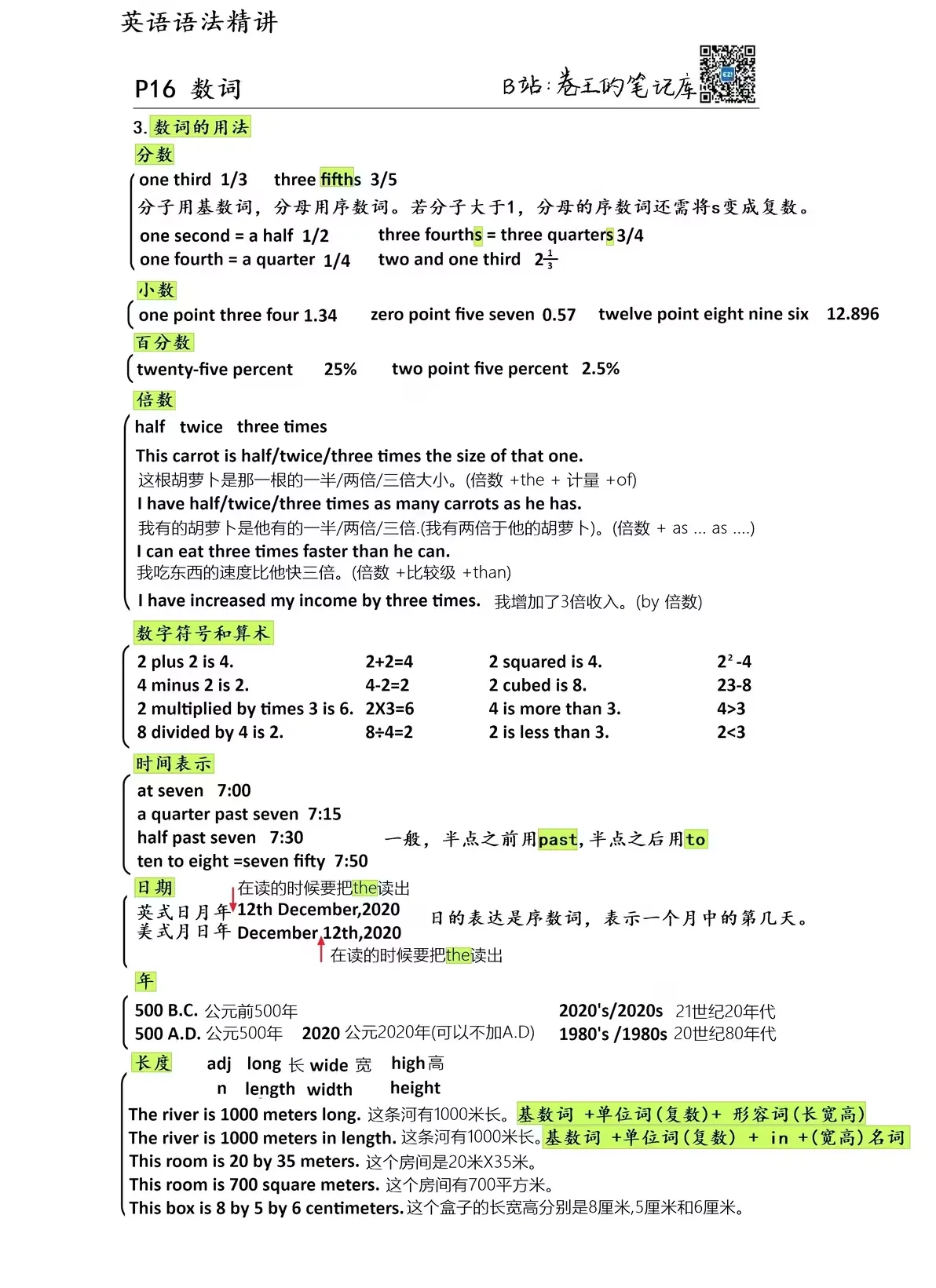
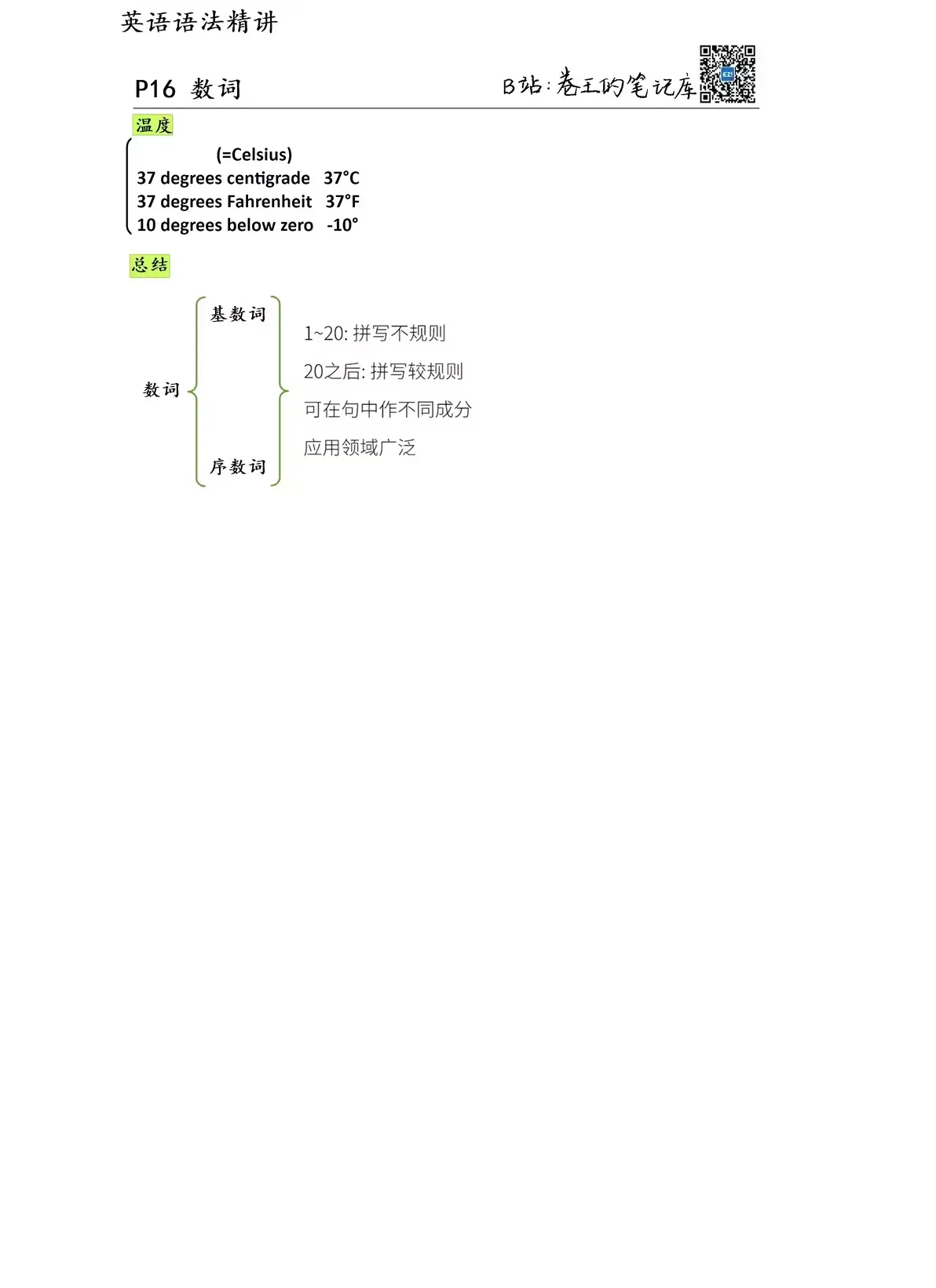
形容词
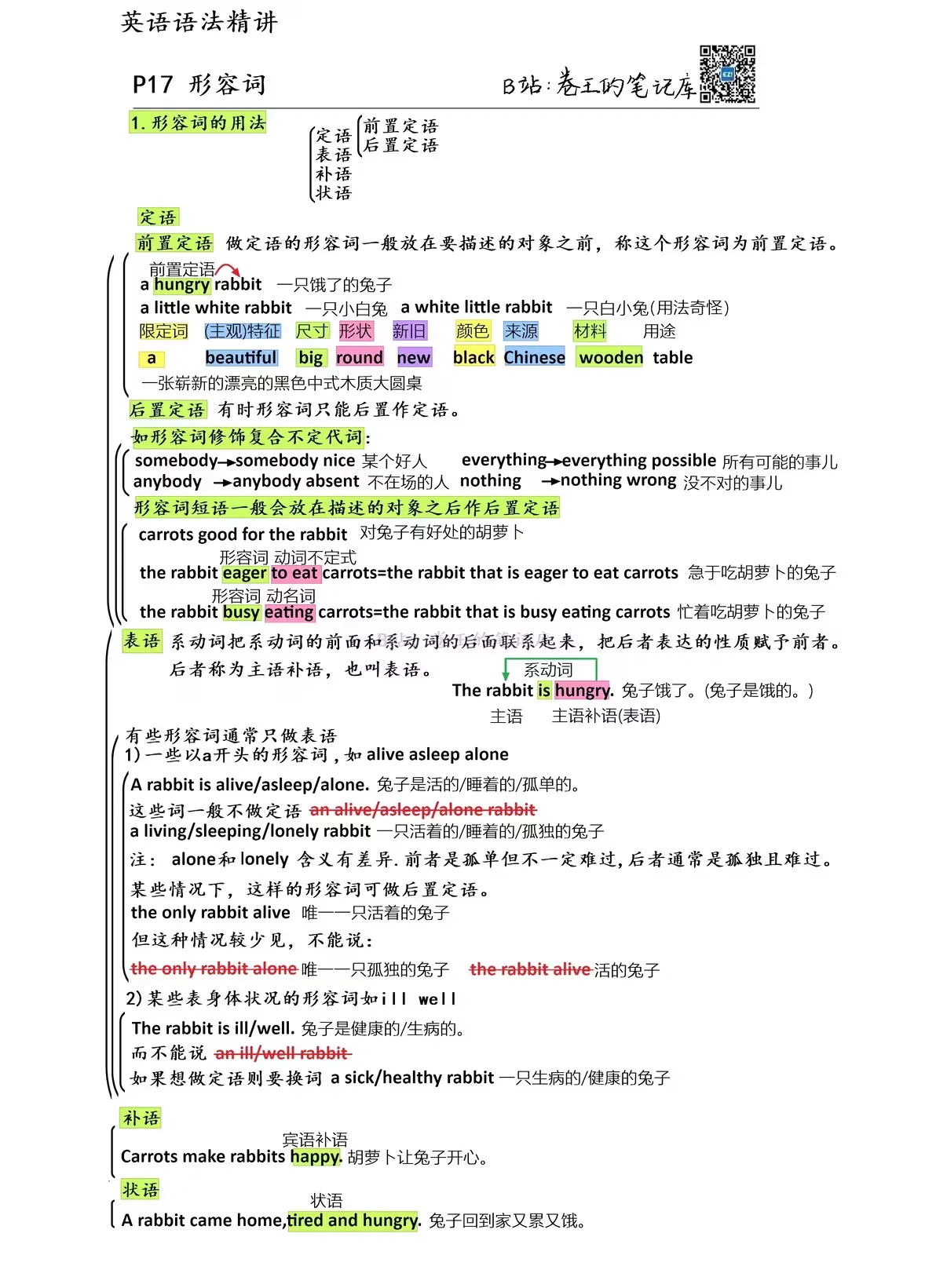
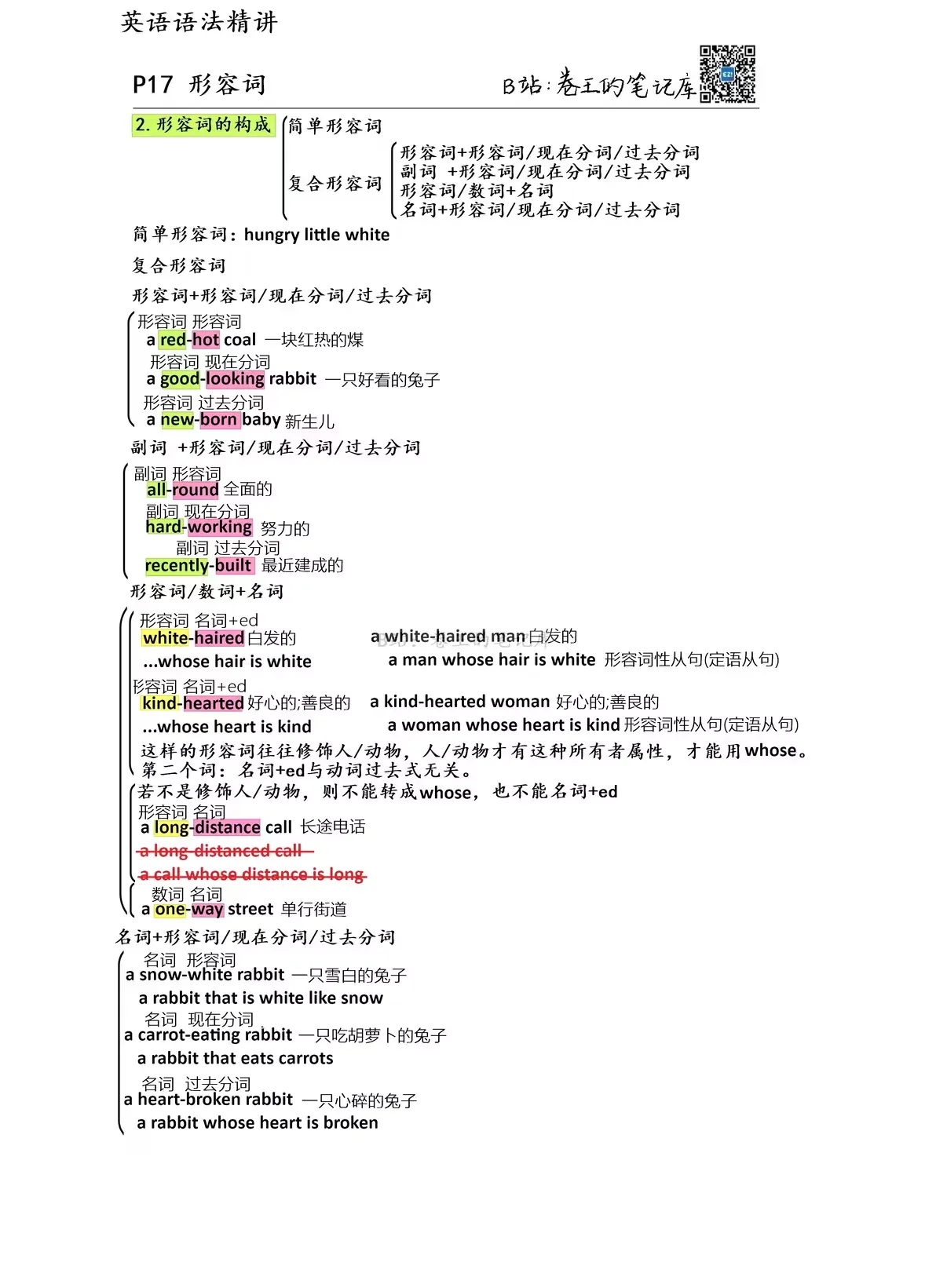
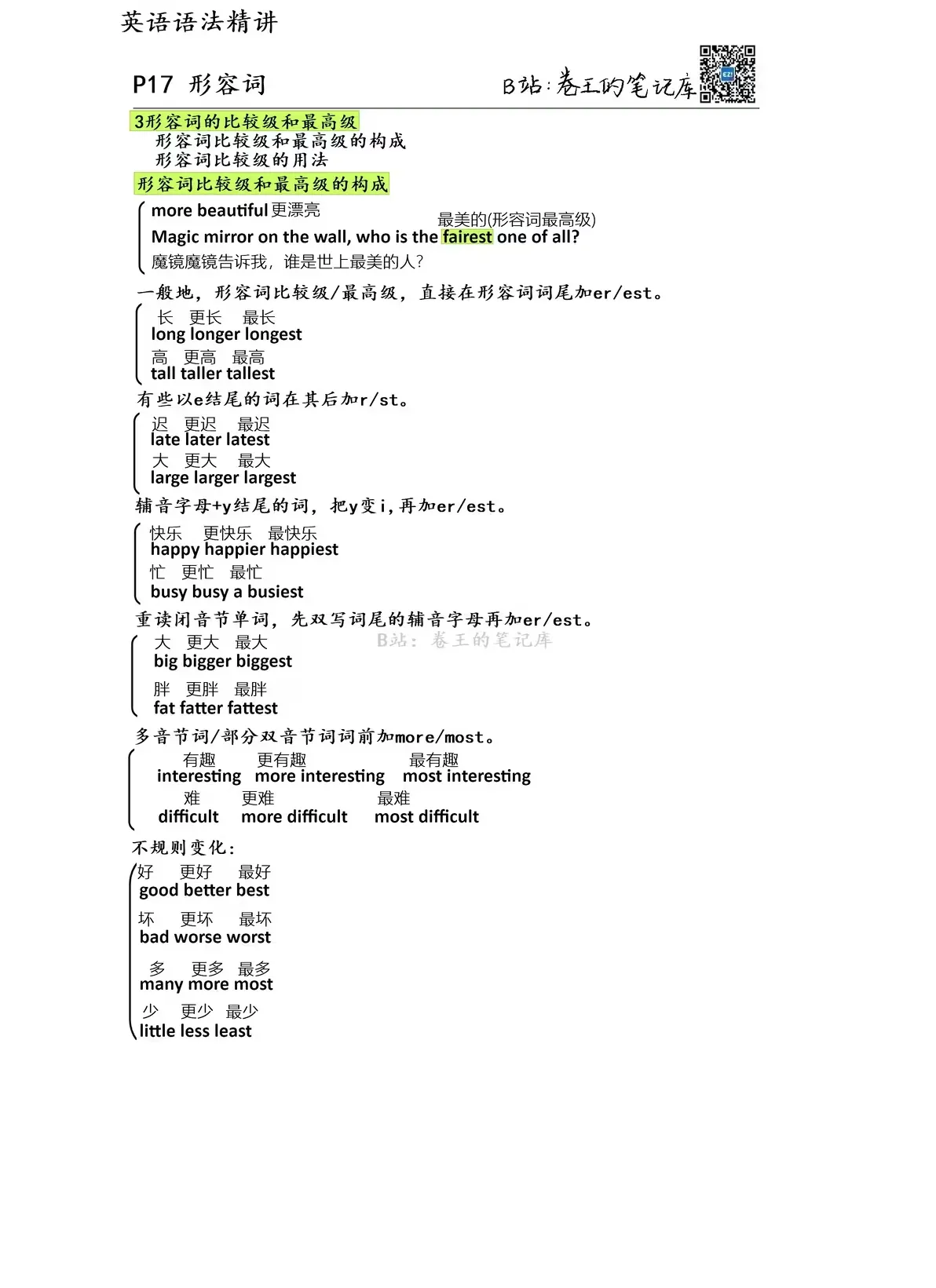
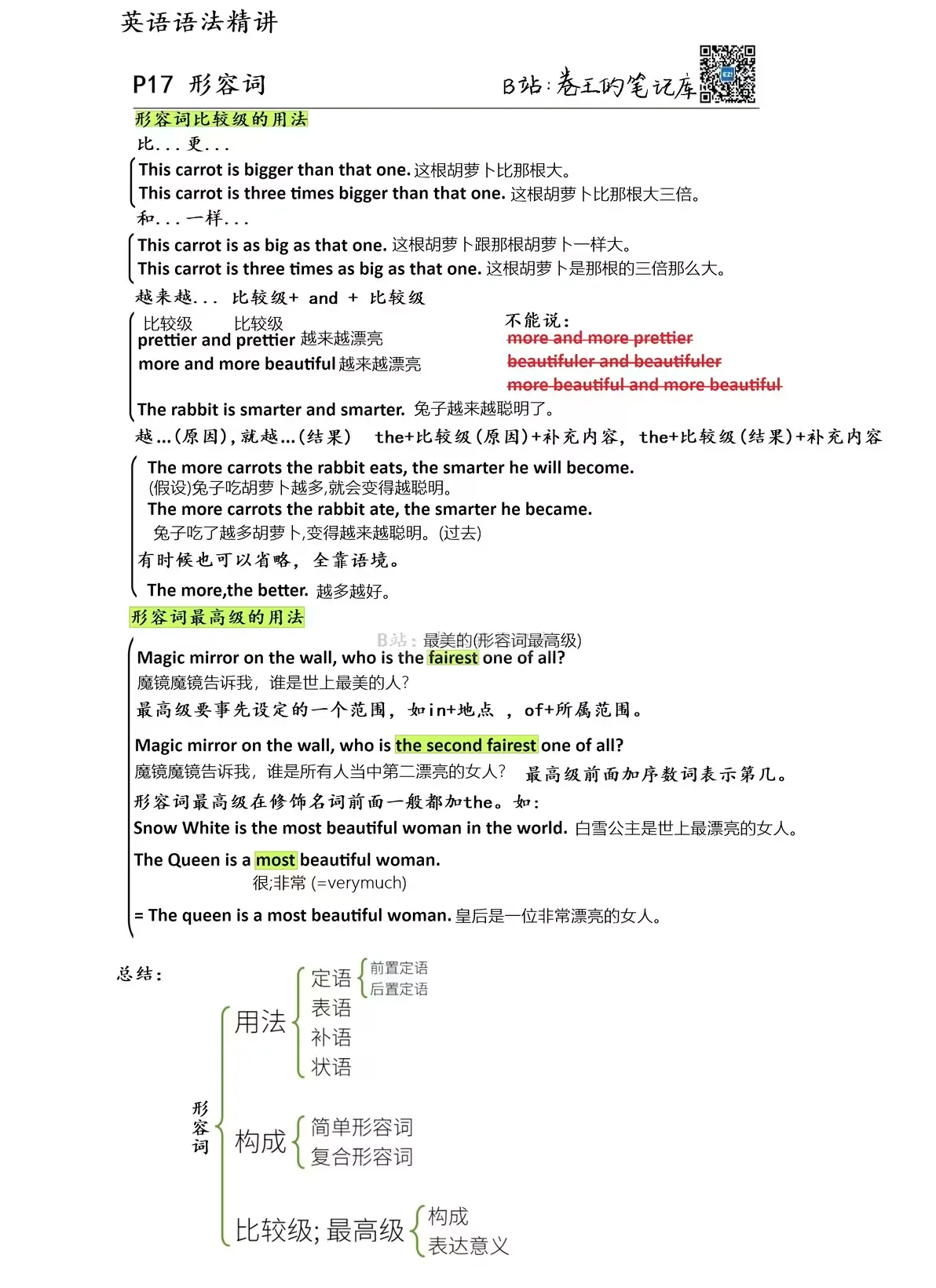
副词
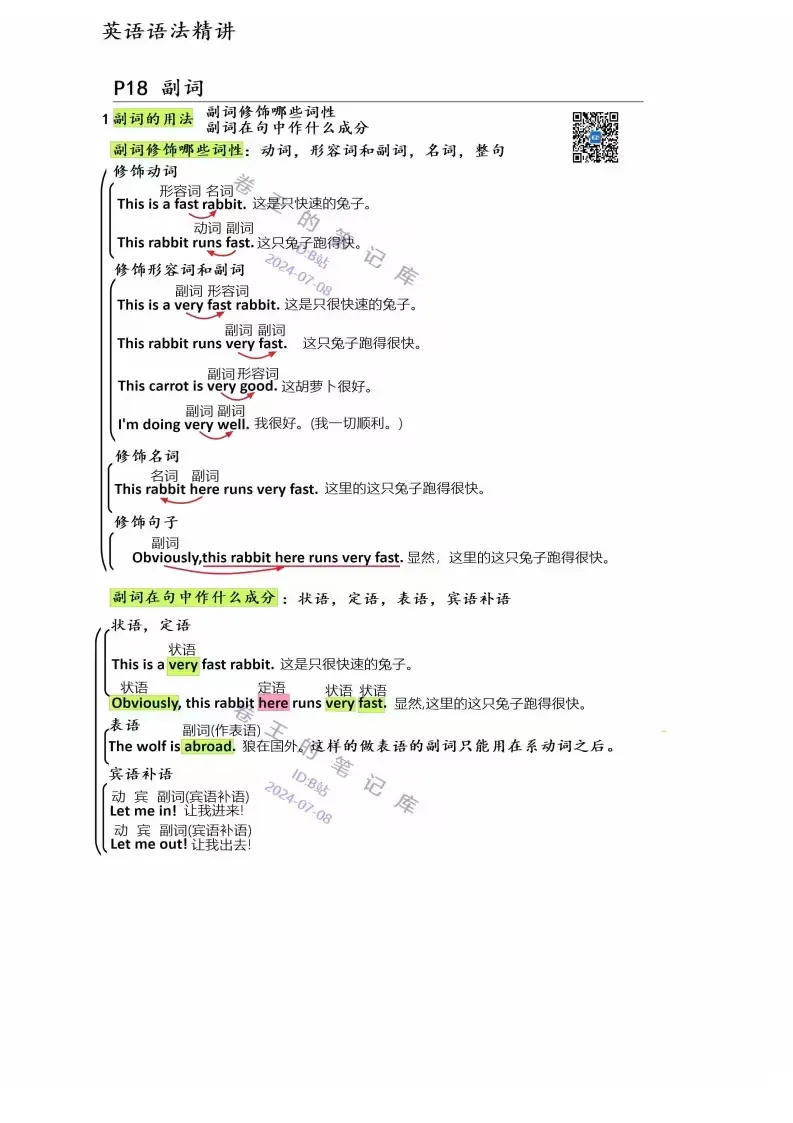
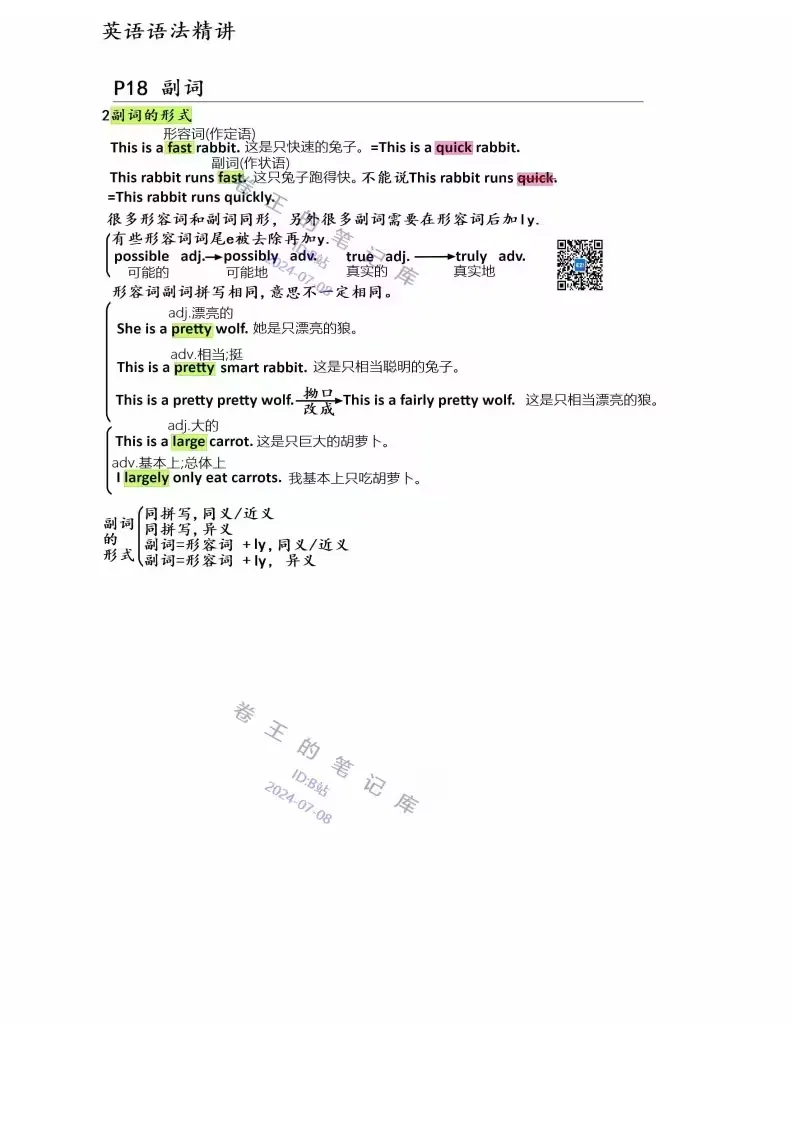
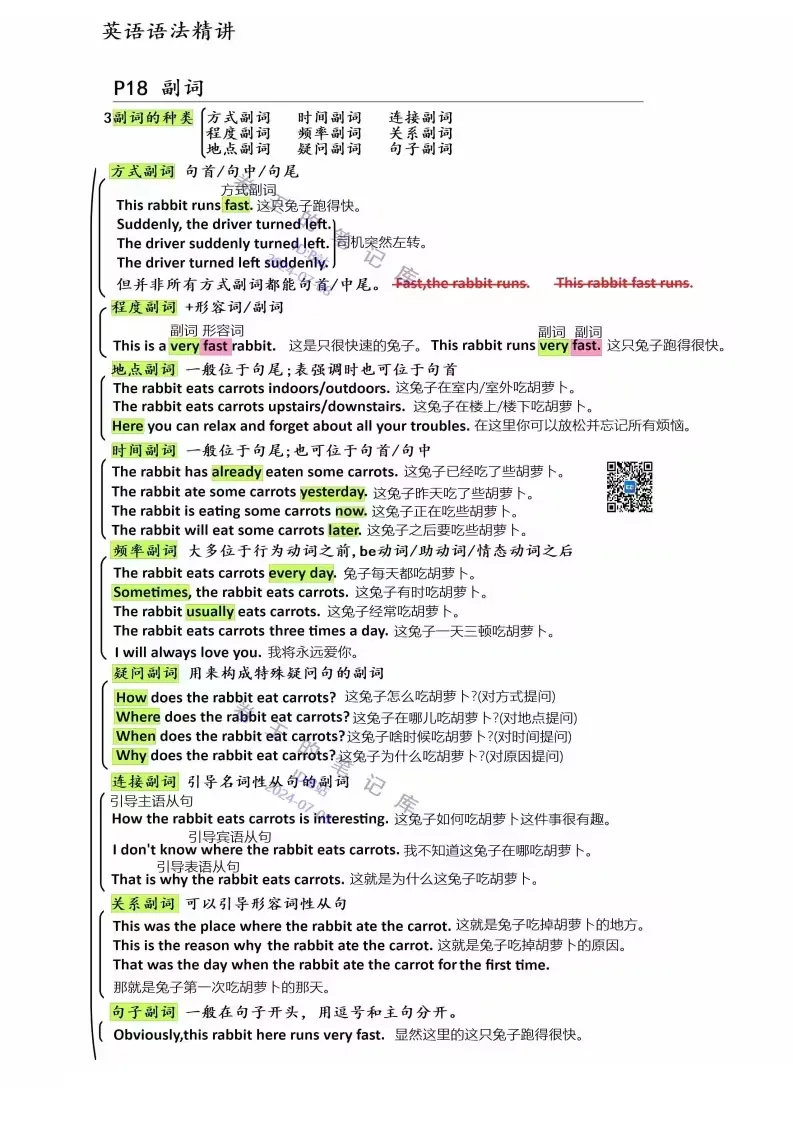
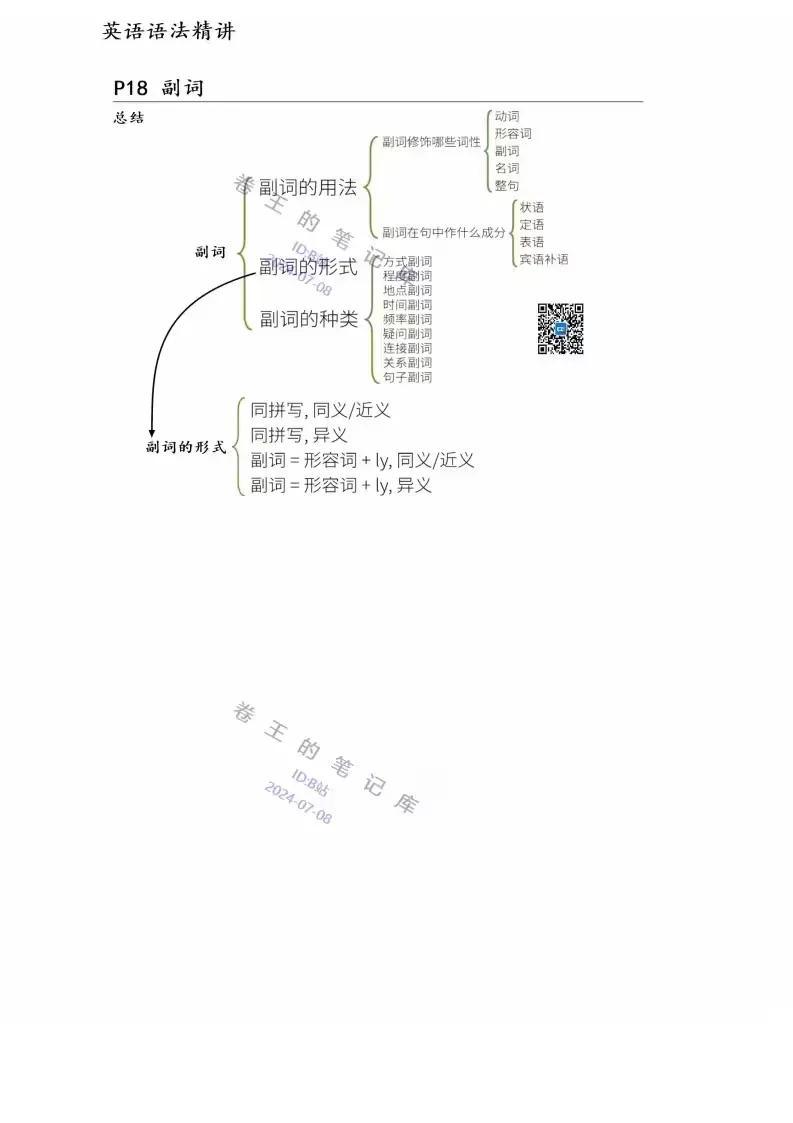
连词
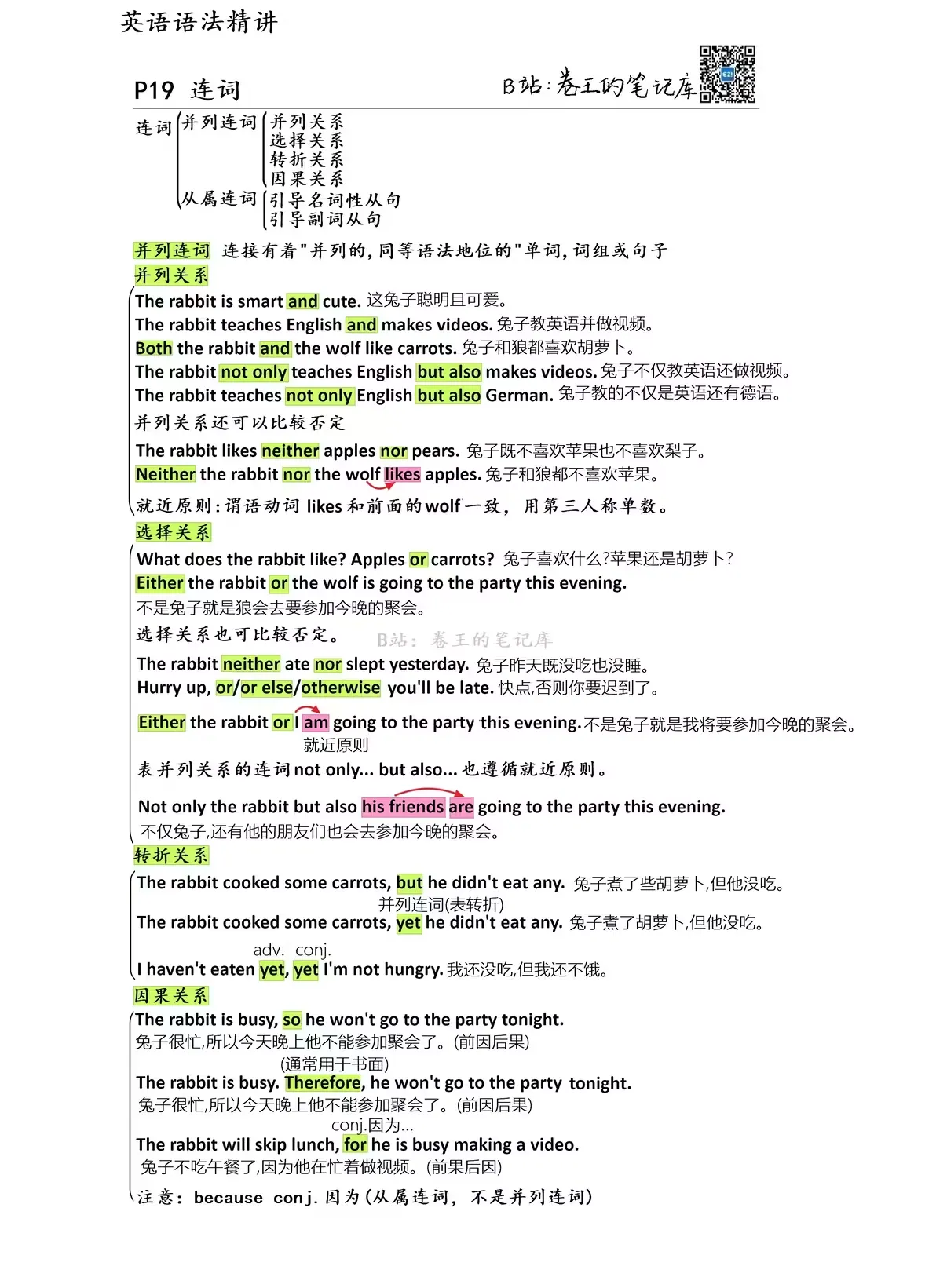
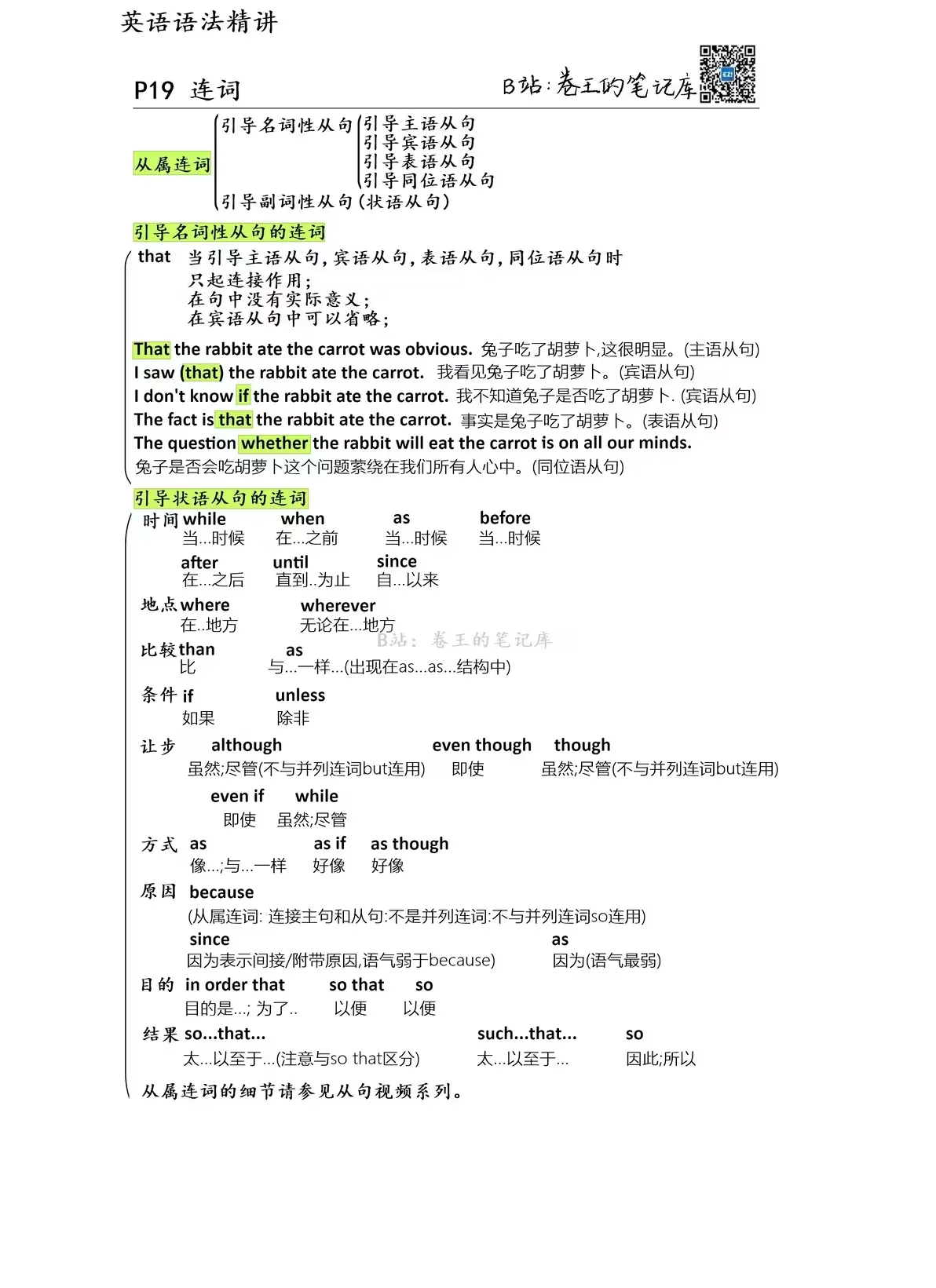
叹词
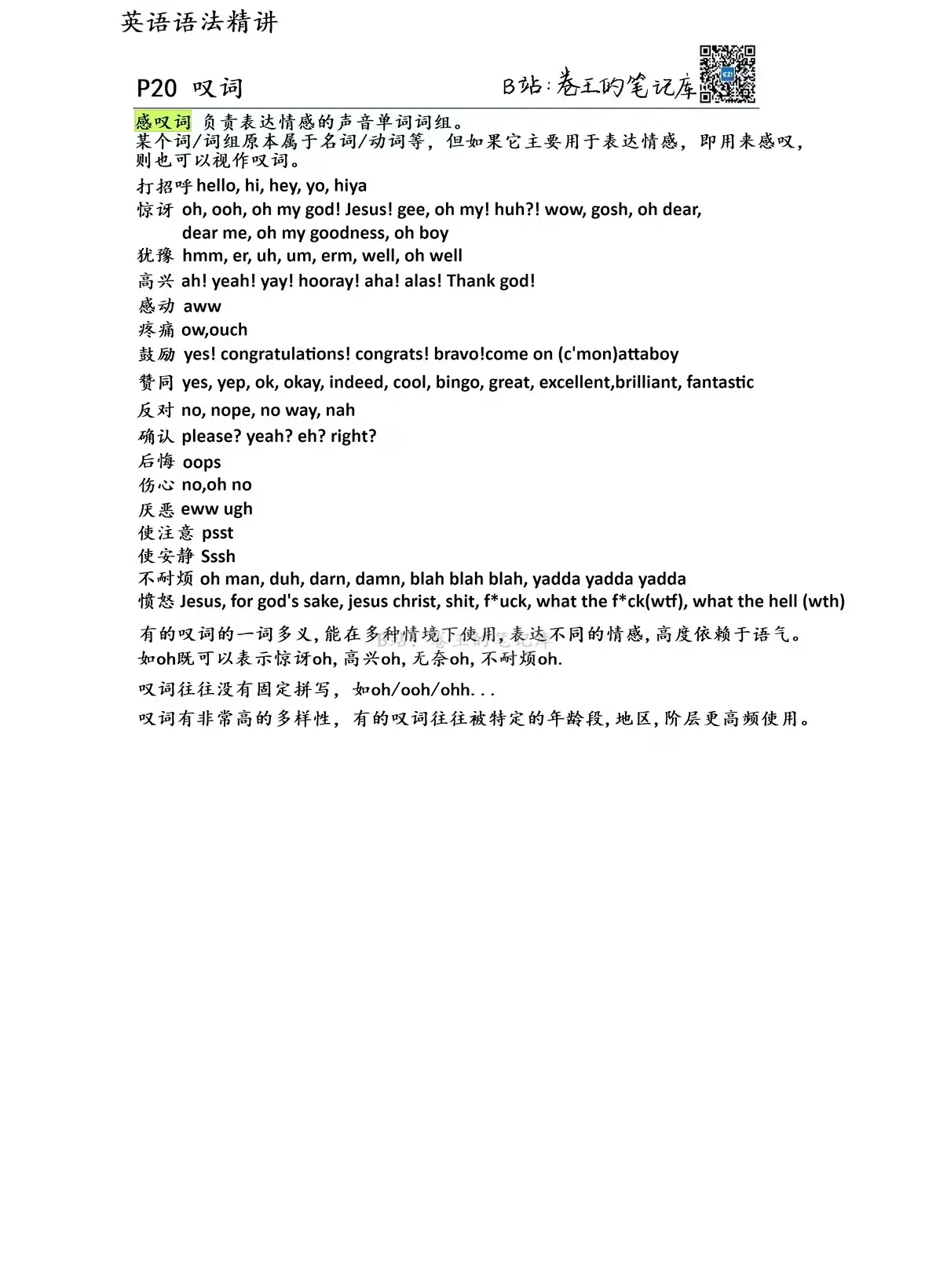
限定词
